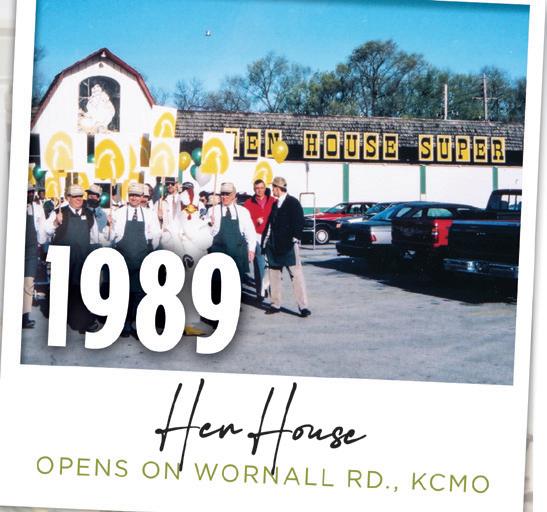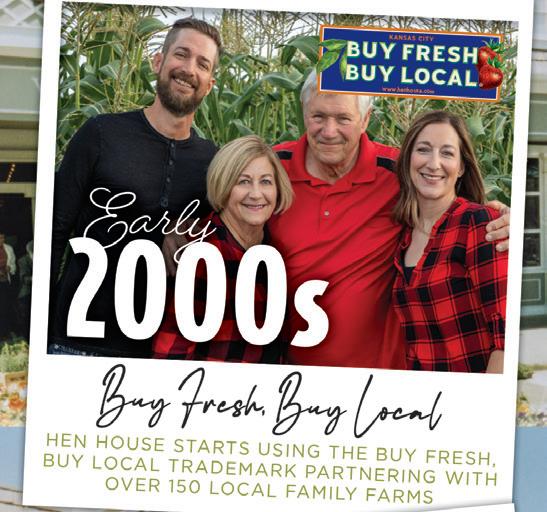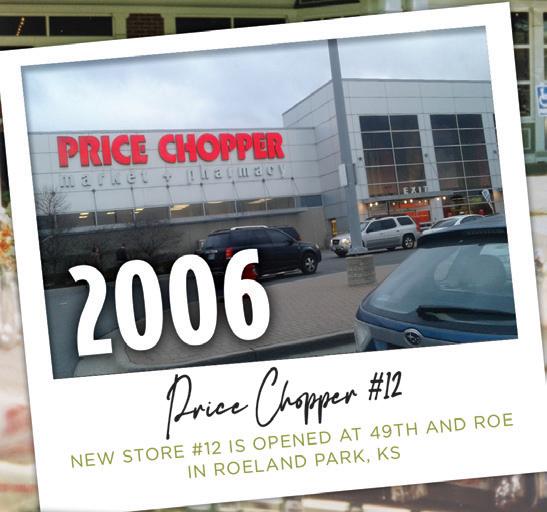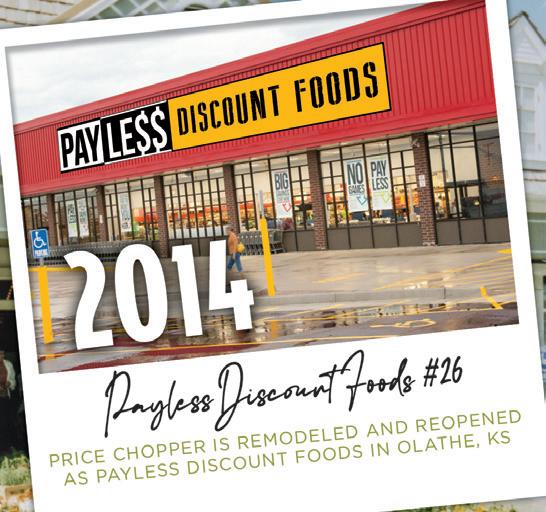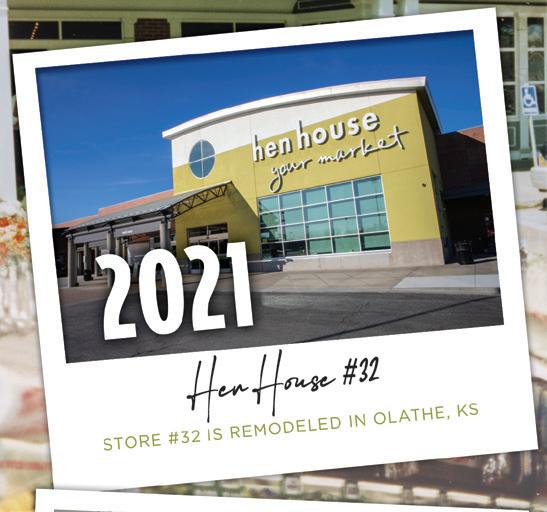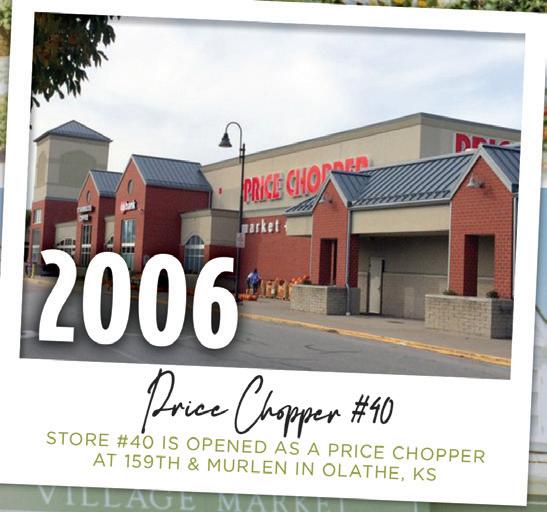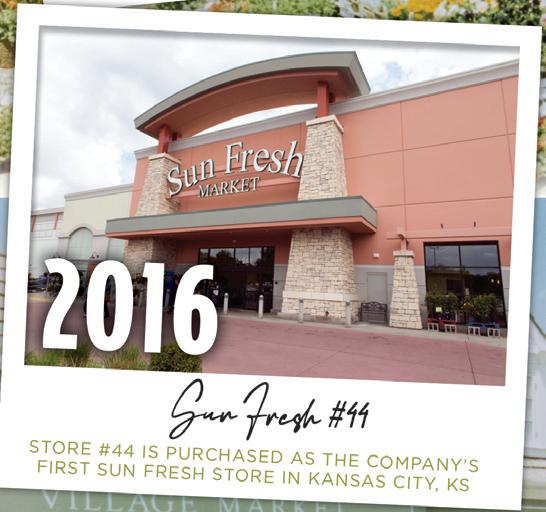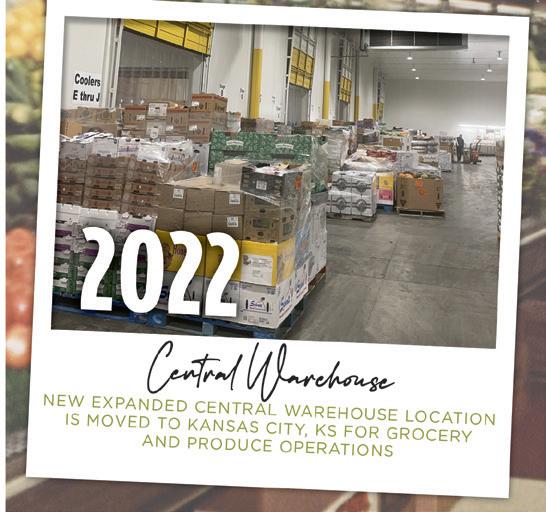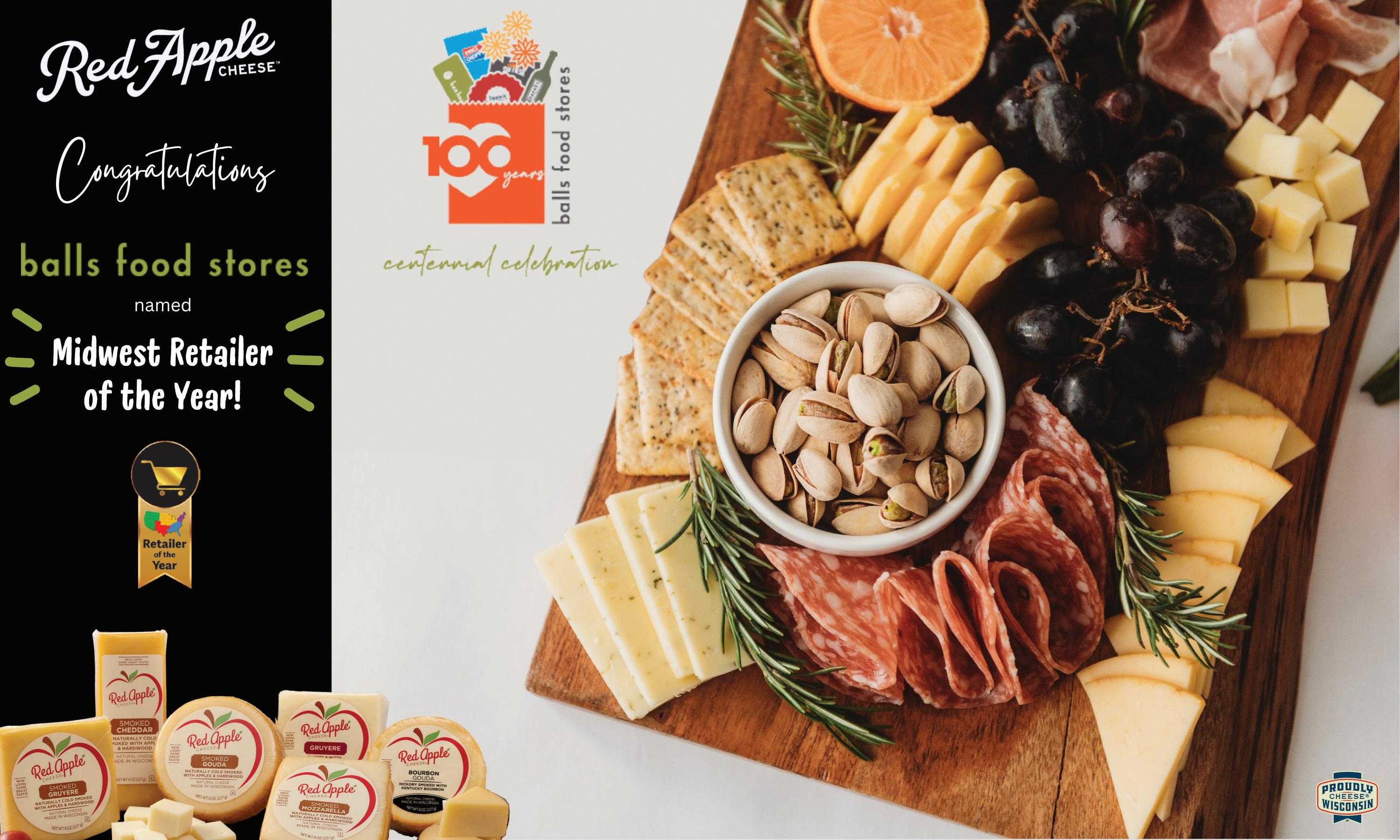




by Treva Bennett / senior content creator
Kansas City, Kansas-based Balls Food Stores – The Shelby Report of the Midwest’s 2025 Retailer of the Year – is embarking on an ambitious new chapter, marked by employee ownership, a strategic growth initiative and deep commitment to its teammates.
The independent grocer, which operates 25 stores under the Hen House, Price Chopper, Sun Fresh and Payless banners, recently celebrated 102 years in business. It remains steadfast in its philosophy: “Our teammates come first. Our customers come second.”
“Being an independent operator, we can react very quickly to our guests’ needs and wants, and we don’t have a real large bureaucracy that we have to go through to change, to be nimble and quick,” said David Ball, president of Balls Food Stores and third-generation family member.

David Ball
“We can make decisions very quickly in our company, so that gives us a competitive advantage over larger competitors.”
In a move underscoring its teammate-centric philosophy, BFS has transitioned to a Teammate Stock Ownership Plan (TSOP), a decision years in the making. The transition was influenced by Ball’s family history and the company’s long-standing culture of valuing its teammates.
Ball shared a story that when his grandfather, Sidney Ball, passed, his wishes were to divide his estate into four equal shares. Ball and his two older sisters each received one fourth. The BFS teammates received the remaining fourth in
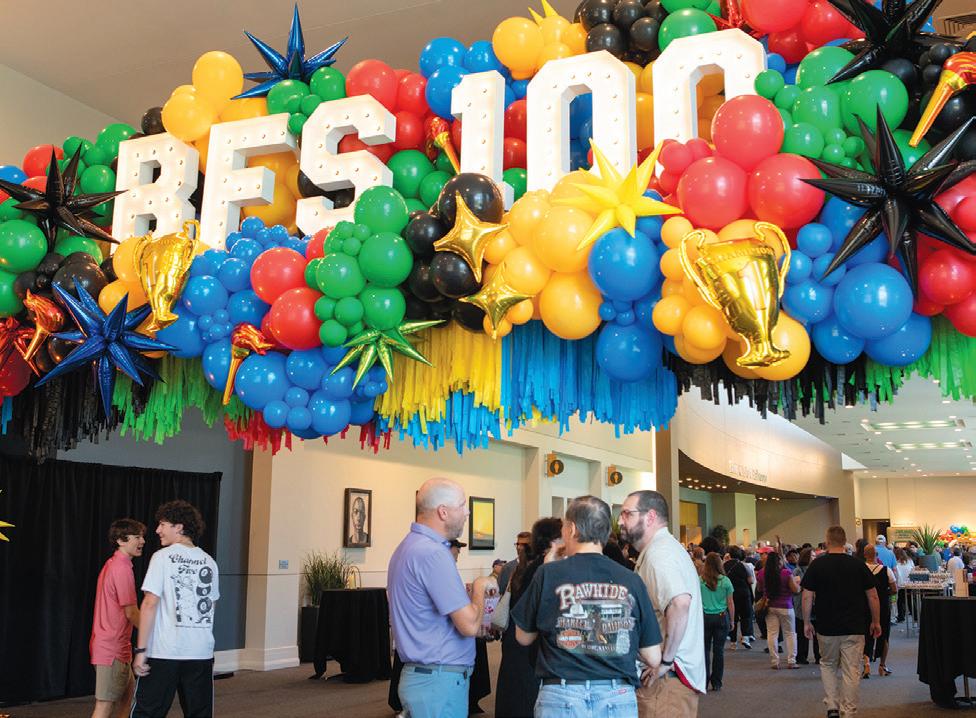
their 401(k) accounts.
“That just gives you an example of what kind of familyowned, teammate-centric company we are. We’re a faithbased company, too,” he said.
Ball said when his parents’ health started declining, he and his sisters looked at a couple of different ways to purchase the company from them. He said the family had always been “intrigued with the ESOP model.”
The company recently decided to transition to a TSOP “because we’re such a teammate-centric company. It just really felt right, like the right time to do it.”
The TSOP took effect retroactively to Jan. 1, 2024, following a company-wide announcement on June 25, 2024. To celebrate, BFS closed its stores early and hosted a companywide party, where 2,200 of its 2,400 teammates gathered to mark the milestone, along with celebrating the company’s 100th anniversary.
“I said we’re going to have a party. We’re going to pay everybody to party,” Ball said. “We rented a convention center. We closed our stores at 5 o’clock on a Tuesday and had all our teammates come from 6-9. We played games, we gave away TVs, other gifts. We also gave away a car to one of our teammates.”
He noted that an internal team has been selected to work on communicating the benefits of the TSOP both to teammates and customers.
“We want our teammates to feel like owners – because they are owners. We want them to take care of our guests,” Ball said. “I always tell our teammates that our top customers spend around $15,000-$20,000 a year with us … that’s a big deal.
“Our customers sign our paychecks, but it’s really our teammates treating them with respect and appreciation.”
While the full impact of the TSOP will unfold over time, Ball emphasized its potential to change lives. “We expect it to change our teammates’ lives, their quality of life, and totally enhance it for the better.”
Alongside the TSOP, BFS has launched “Project BFS 2030,” a strategic roadmap aimed at doubling the company’s size in five years.
Ball said the inspiration for the project came from being a third-generation grocer and growing up in the business. He started at the tender age of 6, gathering cardboard to burn in the incinerator.
His next job was in the bottle room, then “shagging” grocery carts in the parking lots before becoming a cashier around age 12. As he grew up, he worked in all departments, eventually becoming a store manager and then moving into
the support office.
Ball said as the company is ready to go into the fourth generation, he felt the need to tell its story, write it down and prepare leadership for the future.
Leadership talked to teammates in the stores and support office, along with customers, and looked at what other retailers are doing.
“We came up with a little over 40 initiatives, along with looking at our current state and the future. We have 2,400 teammates working for us, so we’ve got 2,400 brains that we can tap into … and utilize that brain power to help us run our business. That’s what this BFS 2030 project is all about.”
The initiatives are structured around four key pillars: operations, growth, people and culture. Four initiatives were launched in 2024: IT Roadmap, Private Label Initiative, Talent Management and Communication.
“We want to 2X our company by 2030 and become a company driven by excellence in retail best practices, talent management, streamlined operations and a strategic approach towards growth,” Ball said, sharing the company’s vision statement.
“We aim to elevate our brands and operations and truly live our vision of being the best-run, friendliest supermarkets in town, where teammates are passionate about providing exceptional guest hospitality and where teammates and guests love to shop for great tasting food.
“While improving profitability and paving a clear path toward our desired future, we will strategically invest in resources and be diligent stewards of our culture and legacy. We will rid ourselves of antiquated beliefs and practices, changing from doing the things the way they have always been done to doing things the way they should be done.”
Please see page 20

One of the initiatives identified is the company’s focus on private label development. Working with Associated Wholesale Grocers (AWG), of which BFS is a founding member, the company is resetting its stores with an emphasis on private label categories, including canned vegetables, pasta sauce and paper products. The initiative is already showing positive results.
“We did a horizontal set and a block set, and we tested it in four stores. After several weeks of data, we’re going out to reset all the stores with the preferred way that our guests wanted us to present it,” Ball said.
Balls Foods Stores’ banners carry AWG’s private label brands, with an emphasis on Best Choice and Always Save.
Store expansions, remodels
BFS also is making significant investments in store

expansions and remodels. The company has two major projects in the works: a new Hen House store in Prairie Village, Kansas, set to open in summer 2026, and a second store in Olathe, Kansas, targeted for spring 2027.
“The Prairie Village store is a relocation,” Ball explained. “We have a store there that’s about 25,000 square feet, and the new one will be about 42,000 square feet. It’s taking over a closed Macy’s store.”
Operating in what he termed as one of the last true independent grocery markets in the U.S., Ball said BFS thrives despite competition from national and regional chains, including Walmart, Aldi and Whole Foods.
“Kansas City is a melting pot for innovation in a competitive environment,” Ball said. “We had one of the first hypermarkets that Sam [Walton] built before he went to the Super Centers in 1988.
“This is a strong market as it relates to Walmart supercenters. This is a strong market as it relates to Aldi … We have Whole Foods. We have a very aggressive competitor out of Iowa. And then of course, a lot of independent grocers are in Kansas City. You name it, we have it here.”
Despite the competitive landscape, BFS continues to differentiate itself through its people and culture.
“Our teammates are No. 1. We have the best teammates in Kansas City,” Ball said. “A lot of people talk about investing in their people, but we do it. Especially in this BFS 2030 project. We are in the process of realigning our organizational structure, which will enable us to focus on store execution.”
With the combination of the TSOP, BFS 2030, store expan-

sions and a strong private label push, the next five years present a unique period of transformation and opportunity for Balls Food Stores.
Ball is confident that the company’s approach will continue to strengthen its competitive position and create lasting benefits for its teammates.
“We have a tremendous amount of career opportunities for our teammates over the next five years that we probably never have had in our 100 years of being in business. The opportunities for our teammates are going to be wonderful,” he said. “We’ve got our work cut out for us, but we’ve got a lot of good stuff happening.”
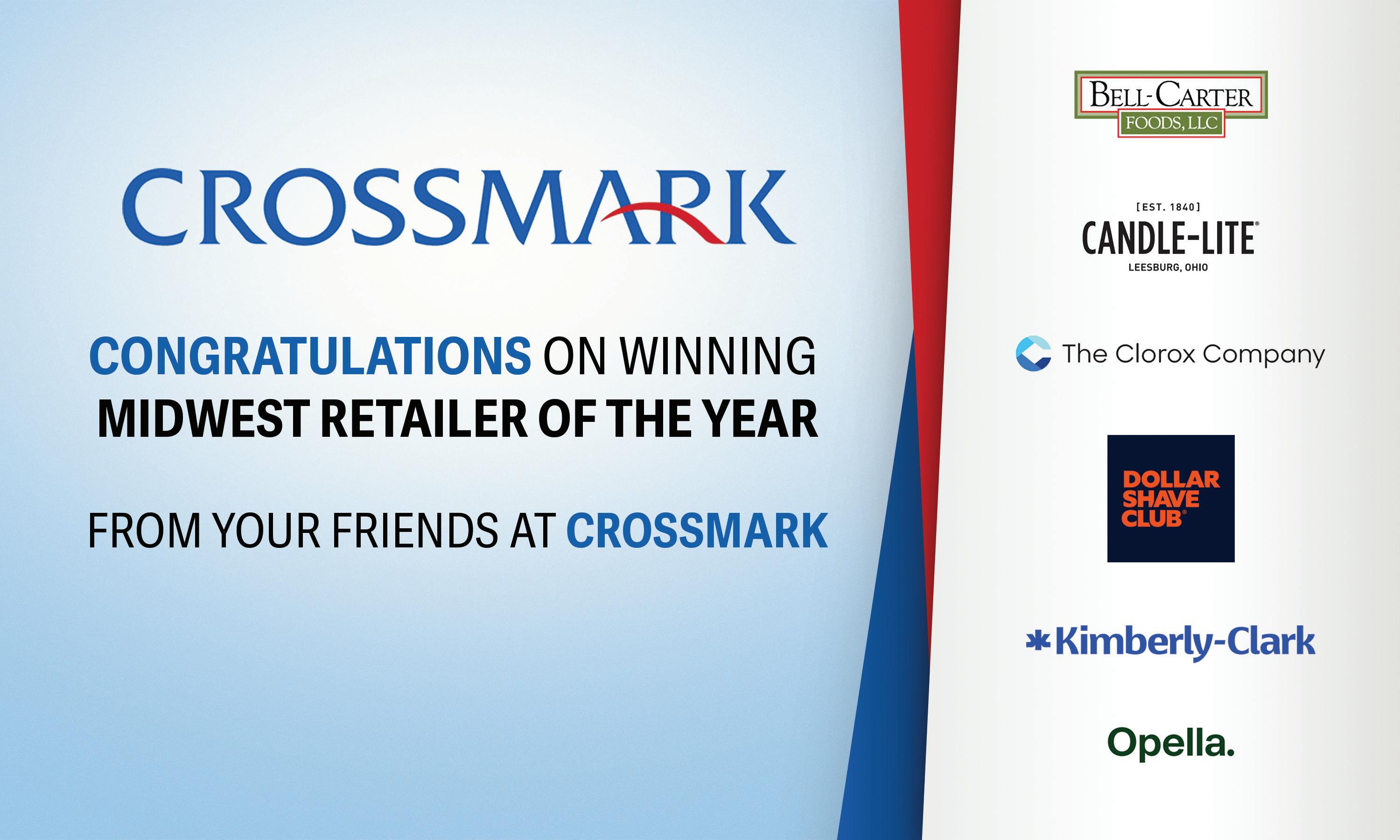

by Treva Bennett / senior content creator
Balls Food Stores has been recognized as The Shelby Report of the Midwest’s 2025 Retailer of the Year, an honor that celebrates the company’s dedication to innovation, community service and operational excellence.

Scott Bayne, EVP of operations, attributes this recognition to the company’s forward-thinking leadership, commitment to its teammates and ongoing transformation into a teammate stock ownership plan (TSOP).
Bayne, who has been with BFS for 11 years, has experience on both the operations and merchandising sides of the business, but the majority of his time has been spent in operations.
“It’s a little bit of a different career path than most. But if you have both, it gives you a more rounded management mindset and better vision on what you’re looking for in the store, in my opinion,” he said.
Bayne said the TSOP is “a great opportunity” provided by the Ball family. BFS is led by President David Ball, a third-generation family member. The move provides “the opportunity for [teammates] to get stock every year and for us to be able to grow with some of the tax advantages of being a [TSOP].”
Bayne emphasized that the transition, which took place on July 15, 2024, marks just the beginning.
“We’ve got to continue to work on informing our teammates that they’re now owners – taking that ownership and how they look at running the business and working in the business, and how we take care of our guests,” he said.
As part of this shift, the company has transitioned its focus from customer service to hospitality.
“We want people to be treated as they would be treated if they were in your home,” Bayne said. “So, we are going to be working on operational excellence and hospitality with all of our teammate owners over the next few years.”
A key driver for the future of Balls Food Stores is Project BFS 2030, a strategic plan aimed at achieving
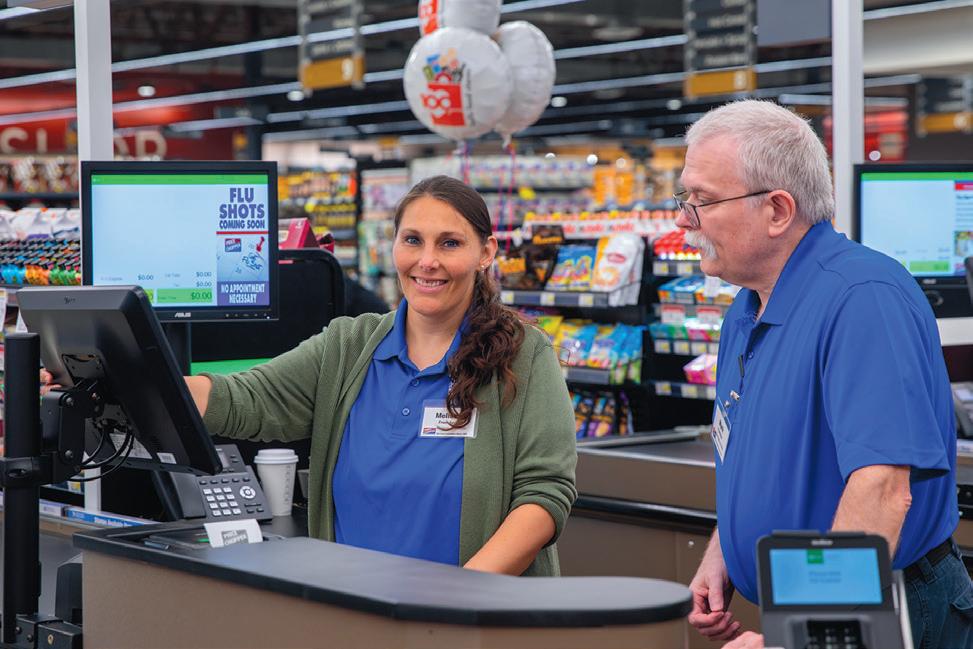
transformational growth, Bayne said. The project focuses on modernizing operations, embracing innovation and shedding outdated business practices.
“One of the worst phrases in business is when you’ve been around a long time, you keep doing it the way you’ve always been doing it,” Bayne noted. “BFS 2030 is giving us some initiatives that we can work on to improve our operating of the company at another level.”
One major component of BFS 2030 is the company’s IT roadmap, which includes a five-year strategy for digital transformation. In addition, a recent private-label initiative has been undertaken, with data-driven product placements aimed at helping increase sales, particularly in the company’s Hen House stores.
A 12-week test was conducted using horizontal and block sets of certain private label categories, collecting data as to which set customers preferred. Over the next three months, that set will be rolled out into all locations.
Bayne noted that people are concerned about their spending, particularly considering inflation.
“All the reports on private label sales, we’ve seen the highest distribution in our Price Chopper stores and our company overall, but our Hen House has been on the lower end of that,” he explained. “We’re going to help that price perception by expanding our private label sets in our Hen House stores and doing the rest of our stores the way the measurement proved out.”
Please see page 24
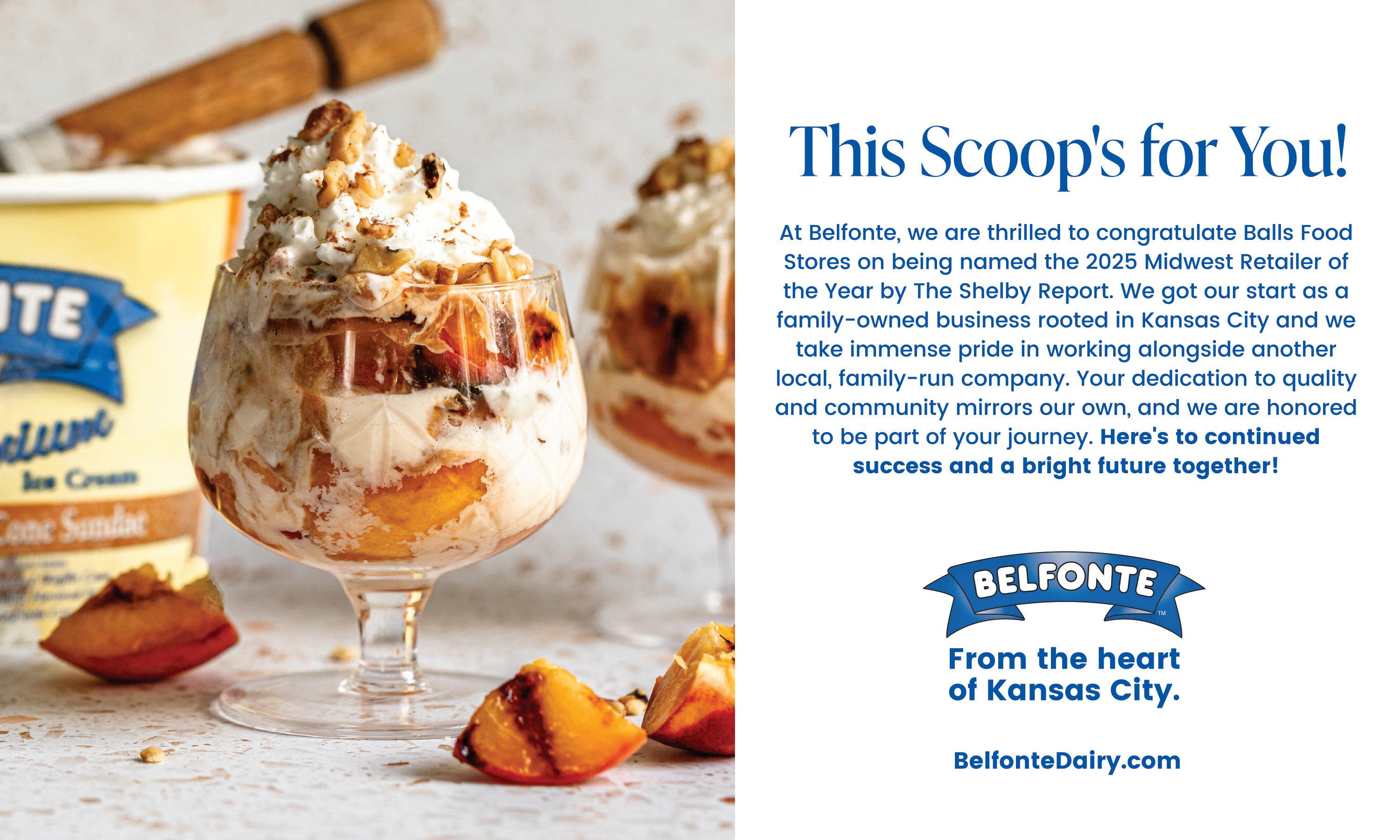
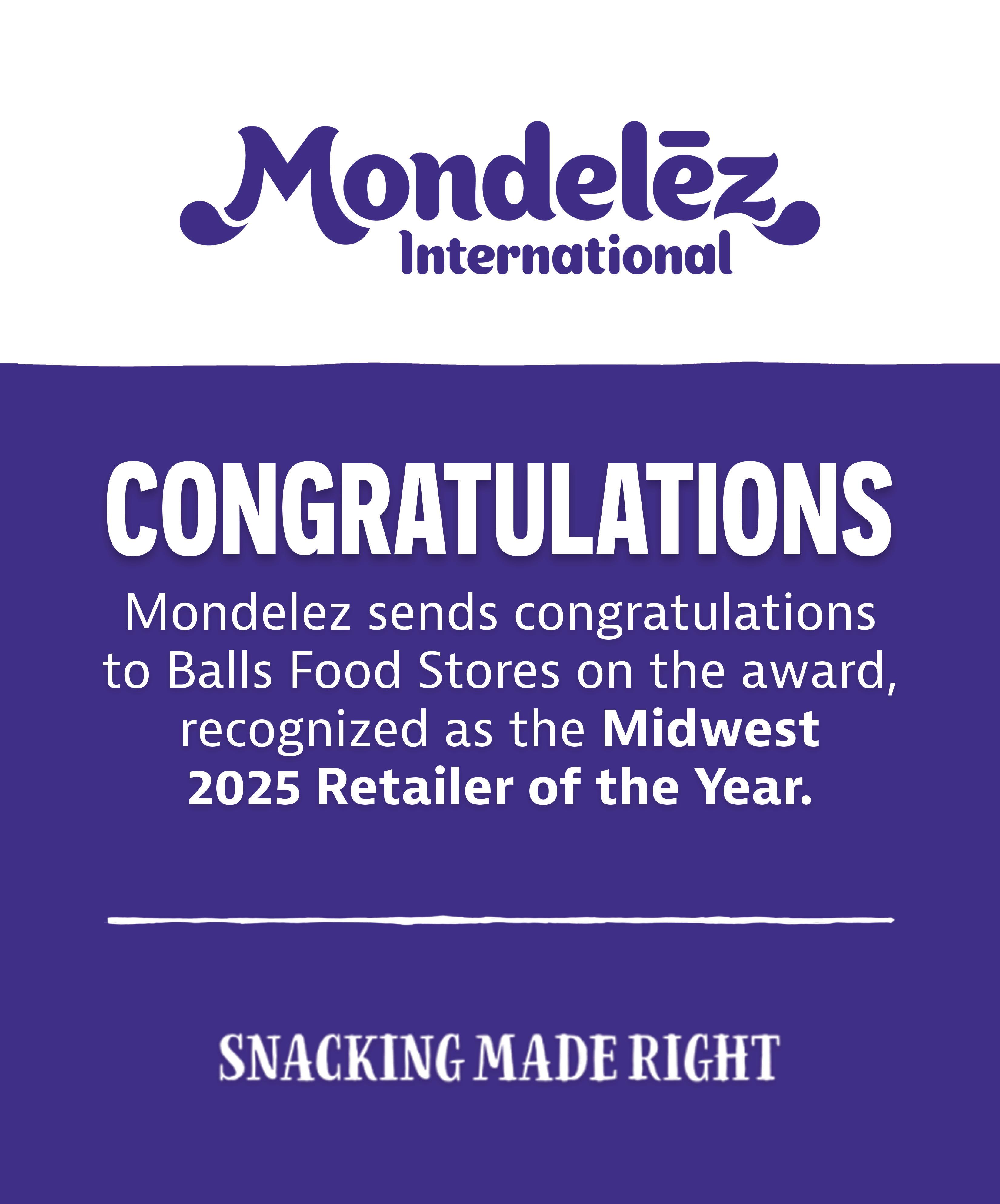
Also part of the BFS 2030 project is growing through store acquisitions.
According to Bayne, the company wants to ensure it is teaching, training and coaching teammates so they are ready for the next level.
“You can’t just buy five stores and think you can jump over there and let everybody run,” he said. “You have to have a structure where you’ve trained people and they’re ready for that next step. That’s something that we’ll be working on to make sure this 2030 [project] is achievable.”
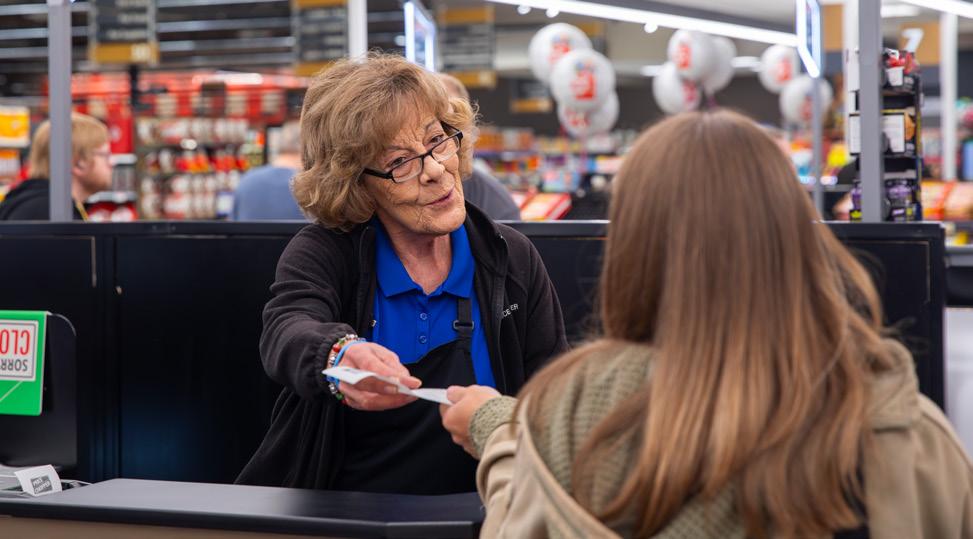
Balls Food Stores is also keeping up with consumer trends by expanding its product assortment to meet the evolving demands of younger shoppers. Bayne said it is important to not become complacent.
“The younger population wants the boba teas and the seaweed chips and things that maybe I might not eat, but they’re looking for those things,” Bayne said. “So, we’ve just rolled out an expanded Asian product [line]. We’ve expanded our Hispanic products.
“We have one of the biggest Hispanic stores in the city, where you can get the tres leches cakes, the fresh tortillas, the thinly sliced meats, the tamales and the fresh churros. Really, it’s knowing what we need to do for the community and how things are changing in our environment. Maybe becoming a little bit more of a melting pot.”
Pet products are another key area of focus and opportunity. “People don’t skimp on their pets,” Bayne explained. “They’ll spend anything if their pet wants it. They’re part of the family in a lot of cases.”
Balls Food Stores is looking to expand its pet category to compete with online retailers such as Amazon and Chewy, ensuring customers have a compelling reason to shop in-store.
A number of exclusive or specialty products, developed over the years, also draw customers to BFS stores. These include Tippins Pies, deli-made chicken salad, Hereford beef and Ozark Mountain poultry.
Bayne noted that the company recently put more focus on average weekly movement of items in-store. This identified areas that could be downsized, like light bulbs and school and office supplies, and areas to expand, including retro candy and energy drinks.
“I like to look for a lot of industry best practices … everything’s tagged. You don’t keep stuff for six months, and everything has a place. It really makes it easier on our teammates to do their jobs. There’s not a lot of clutter and excess stuff that you have around.”
Balls has changed its water, CSD (carbonated soft drink) and paper sections to a deeper base. This provides the inventory customers seek, and shelves don’t have to be refilled as often.
Bayne said the shelf height has been changed in the HBC and GM departments, going from 72 to 60 inches. This improves the appearance and brings more inventory turns, “so it’s financially right for the company.”
The liquor departments also feature lowered shelf height. This provides improved customer service, as teammates can better see and assist shoppers. It also reduces stock and increases inventory turns “substantially,” Bayne said.
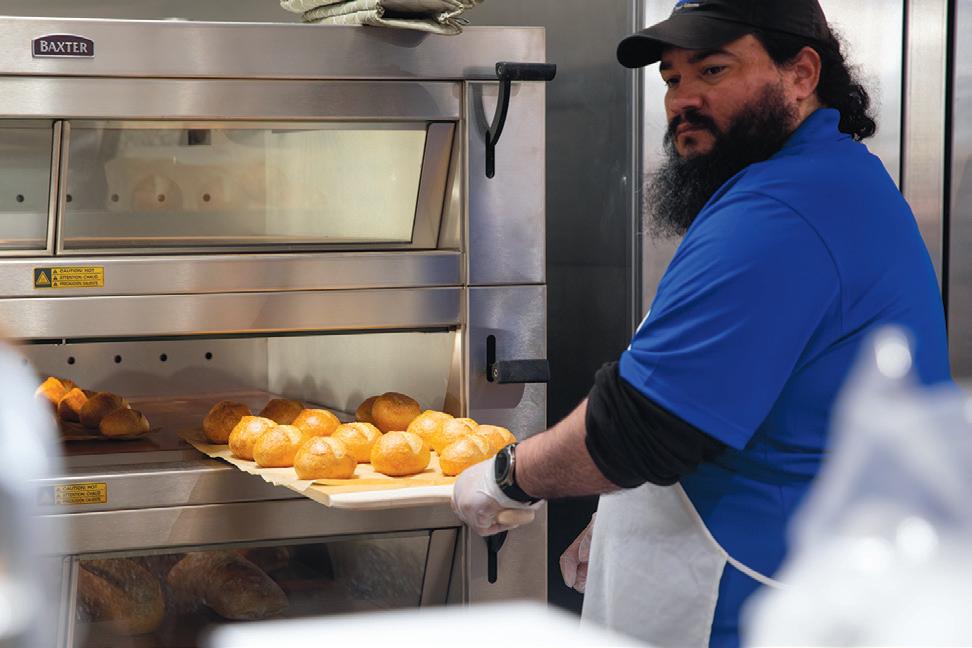
Over the past 12 years, Balls Food Stores has invested about $150 million into store remodels and operational improvements.
“We’ve been remodeling and closing some underperforming stores. When I got here, we had 28 stores, and now we have 25. But we’re doing more business in those 25 stores than the company did when [there were] 30 stores. And the stores are in better condition,” Bayne said.
He noted if the company is to reach its goal of transformational growth, “We have to acquire, we have to keep our facilities up, and we going to have to continue to grow.”
With the high cost of ground-up construction of new stores, Bayne said acquiring stores likely will be more feasible financially.
The company has implemented innovative lossprevention measures, including the Gatekeeper cart security system and Everseen technology at self-checkouts to reduce shrink.
Another major investment is the company’s 125,000-square-foot central warehouse facility, which has improved supply chain efficiency.
While BFS is a member of AWG, it does some direct buying for produce from more than 150 local farmers. The warehouse has a 40,000-square-foot cooler with three different temperature zones for produce. All the docks are refrigerated to maintain the cold chain.
About 25,000 square feet is designated to store equipment, while the rest houses dry grocery and some office space.
“It’s going to run millions this year through the facility. It really helps us with margin,” Bayne said. “From a produce standpoint, we can really watch the quality because it’s coming out of our facility.”
Bayne added that the company will continue to maximize performance at the facility, which provides a lower cost to the stores and customers.
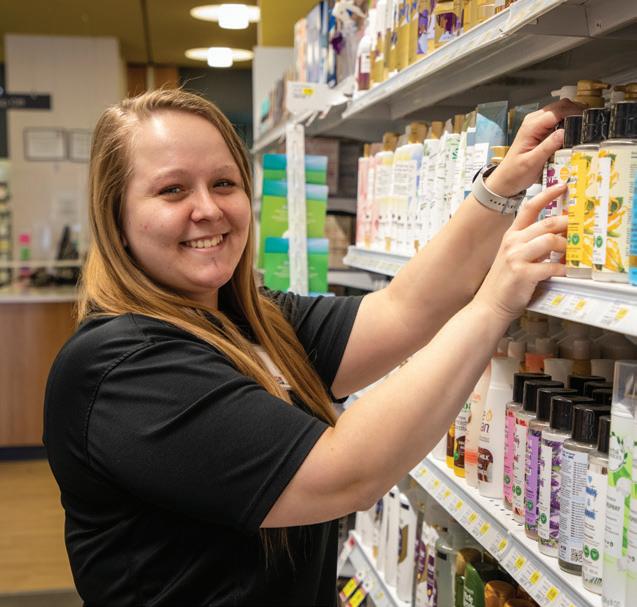
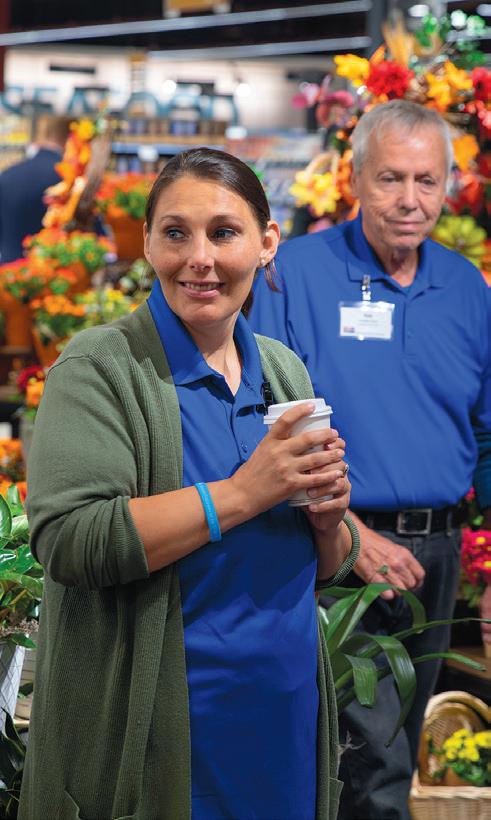
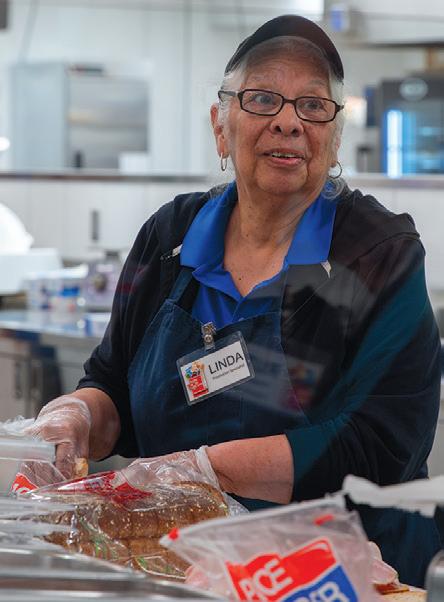
Balls Food Stores’ deep-rooted community involvement is another reason it has earned Retailer of the Year honors.
“I think we have a true servant leader in our leader, and he's been in the industry for well over 50 years,” Bayne said. “And it’s family owned, third generation, 102 years in the business, the last remaining founder of AWG, the only … founding member that's still in the business. What they've done in the community they don't brag enough about.”
The company’s philanthropic efforts include working with 28 food pantries in the Kansas City metro area. Ball recently made a commitment to feed more people for less through its food bank donations.
On the first delivery after that commitment, Bayne got a call from one of the company’s food bank partners. “Their trucks were almost double what they used to get. When they did a cost analysis, their costs went down by 46 percent.”
He said the Ball family’s philanthropy is evident around town.
“I see the Ball Family YMCA, and Kaw Valley Center (KVC) has the Ball Family Conference Center that David’s mother helped start. KVC works with over 70,000 kids a year.”
Bayne also pointed out that providing 2,400 jobs in the community also gives back.
“We have family members that the husband, wife, son and daughter all work in our organization,” he said. “They’re able to have a house and cars and send their kids to school.”
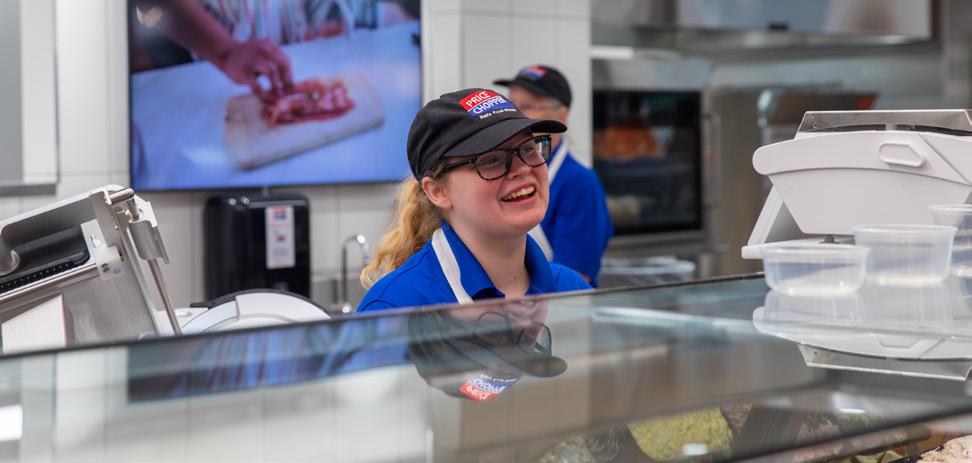
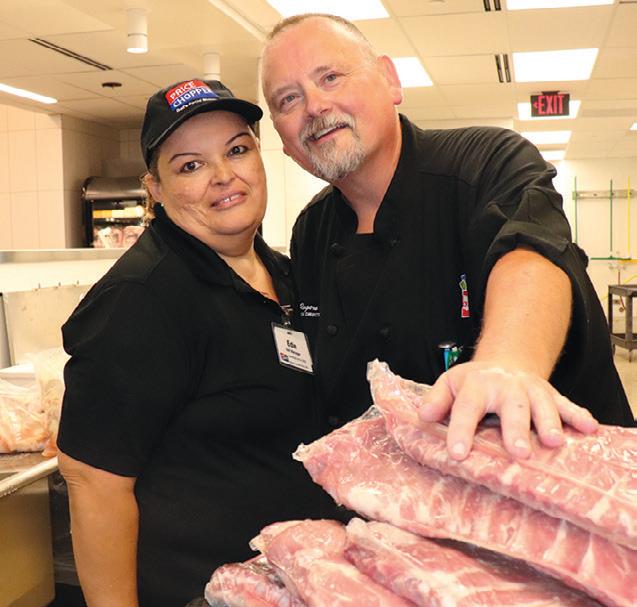
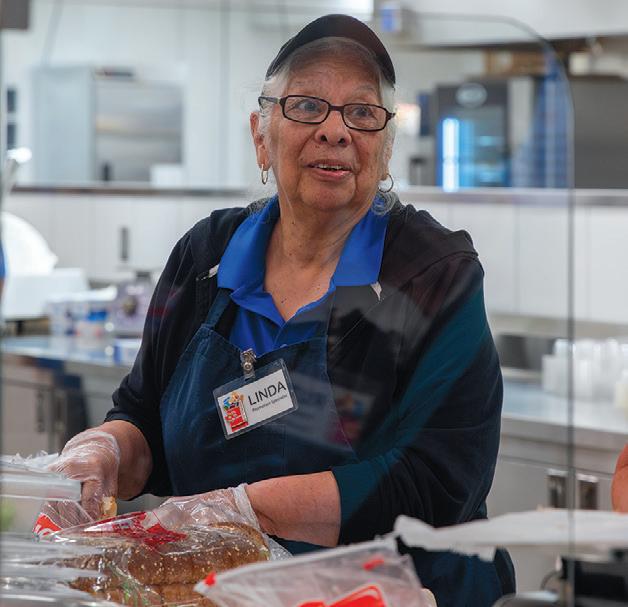
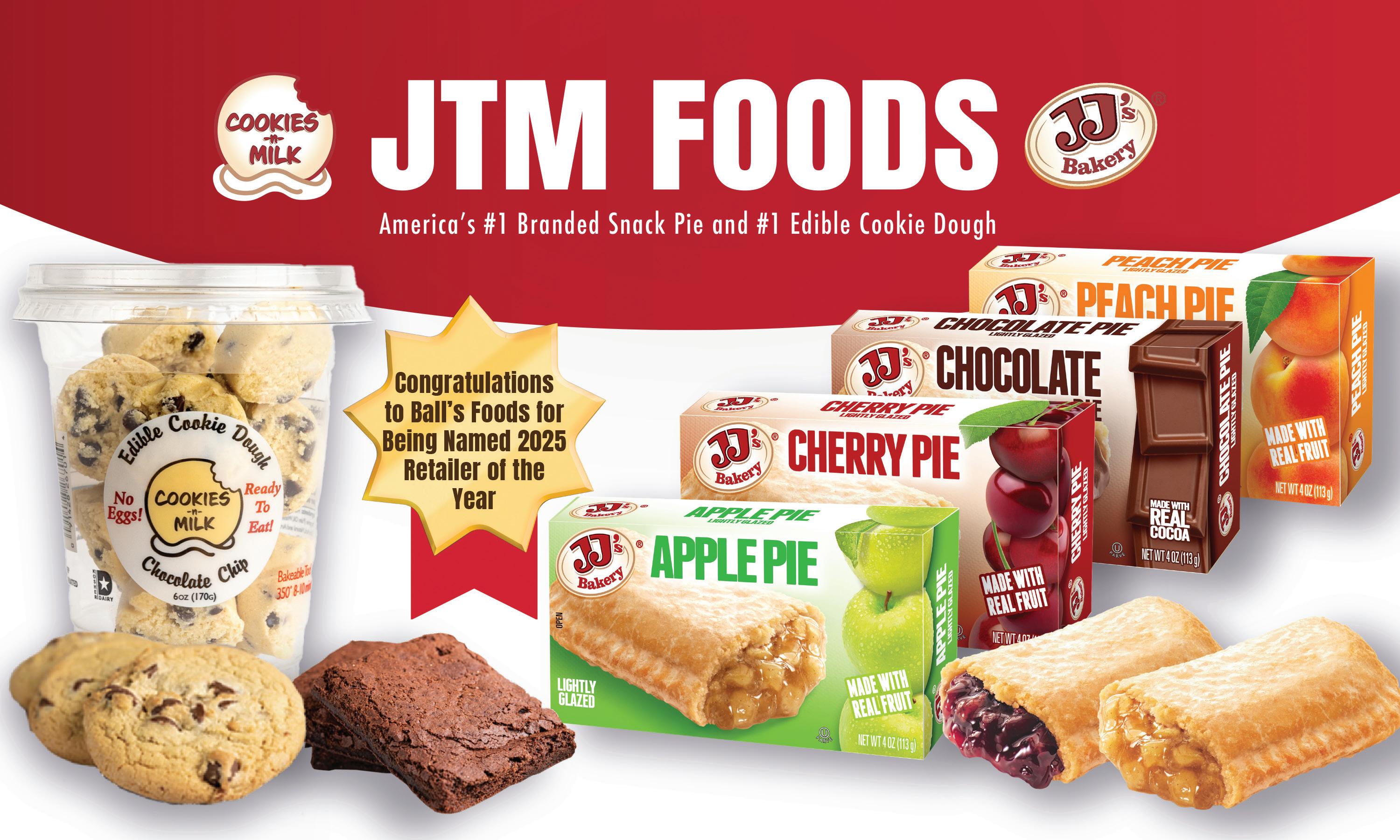
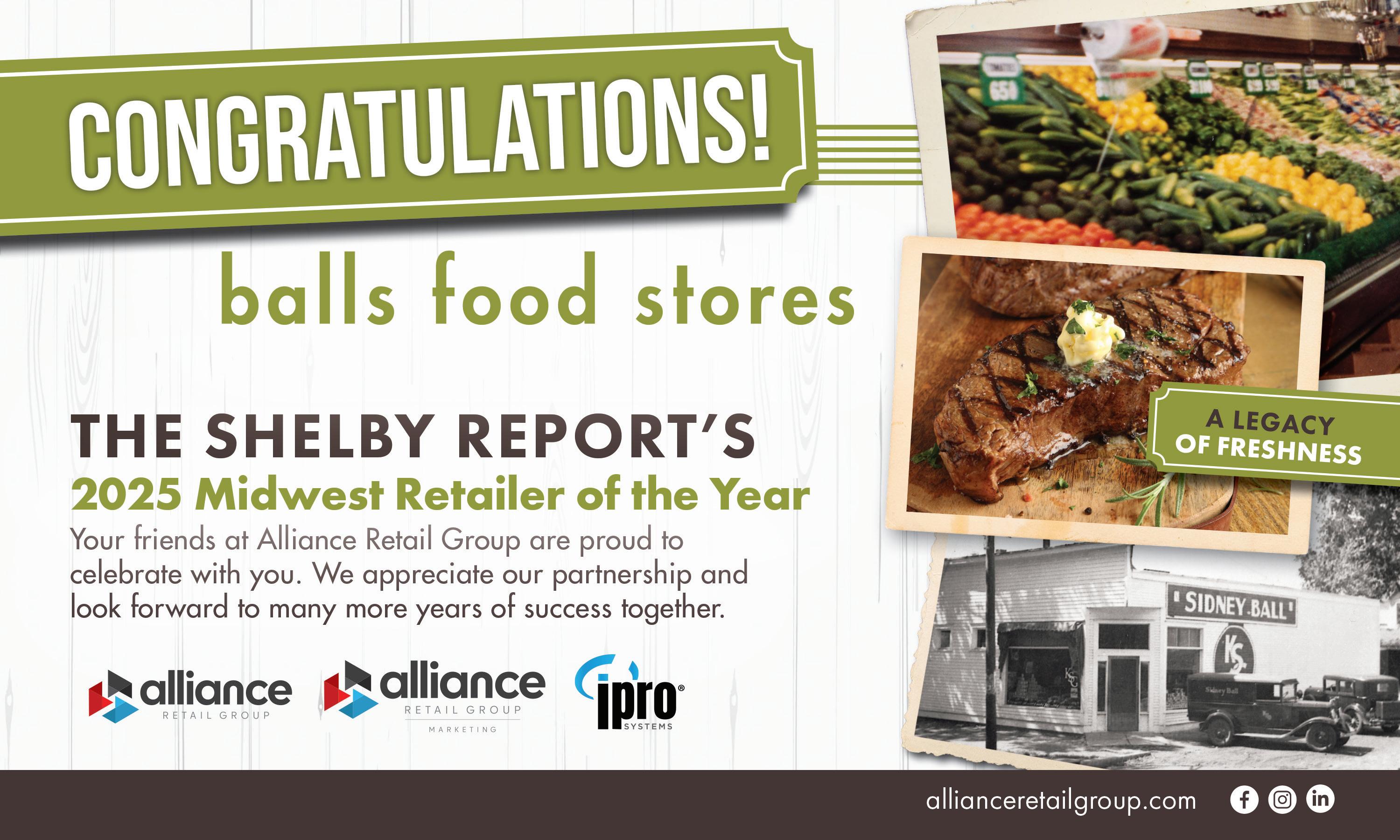
by Treva Bennett / senior content creator
Balls Food Stores, an employee-owned grocery retailer serving the Kansas City area for more than a century, operates four banners – Hen House, Price Chopper, Sun Fresh and Payless.
Gregg Frost, VP of human resources, has been with the company for nearly 49 years and is one of its longestserving team members. He attributes much of Ball Food Stores’ success to the leadership of President David Ball and an emphasis on building a strong, teammate-centric culture.

A major initiative that reflects the company’s commitment to its workforce is the recent implementation of the Teammate Stock Ownership Plan (TSOP), introduced during Balls Food Stores’ 100th anniversary celebration in 2024. Frost sees the TSOP as a defining part of David Ball’s legacy.
“In the world that we live in, we think that an ESOP or TSOP is the next best step to carry us another 100 years … we know that the future is important for our teammates, and David wanted to give back to them and create a vehicle to do that,” Frost said.
While employee ownership is still a relatively new concept at Balls Food Stores, Frost believes it will have a profound long-term impact.
“We believe that if people are owners, they’ll have a different mindset,” he said. “They’ll be more intentional about the things that they do and will feel that ownership.
“We’re still growing into that, and it’s one of the things that, as time goes on, I think will become just the norm.”
Looking ahead, Balls Food Stores has set ambitious goals under its BFS 2030 strategic initiative. The company aims to double in size within the next five years, utilizing a structured planning framework called OGSM – objectives, goals, strategies and measurements.
“We probably have done a little of this ad hoc. But now, as we go through, we’re intentional,” said Frost. “We set objectives, we establish goals around those and then we
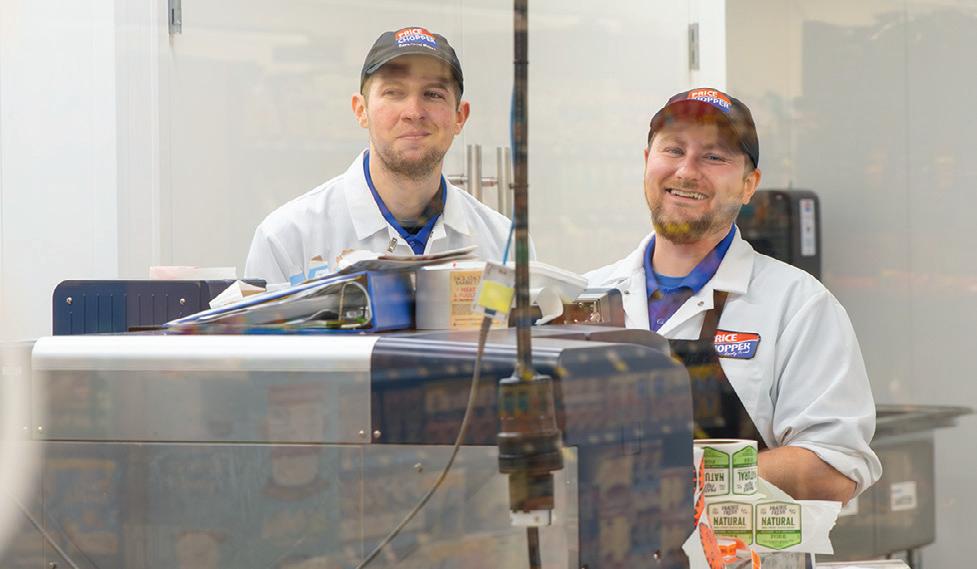
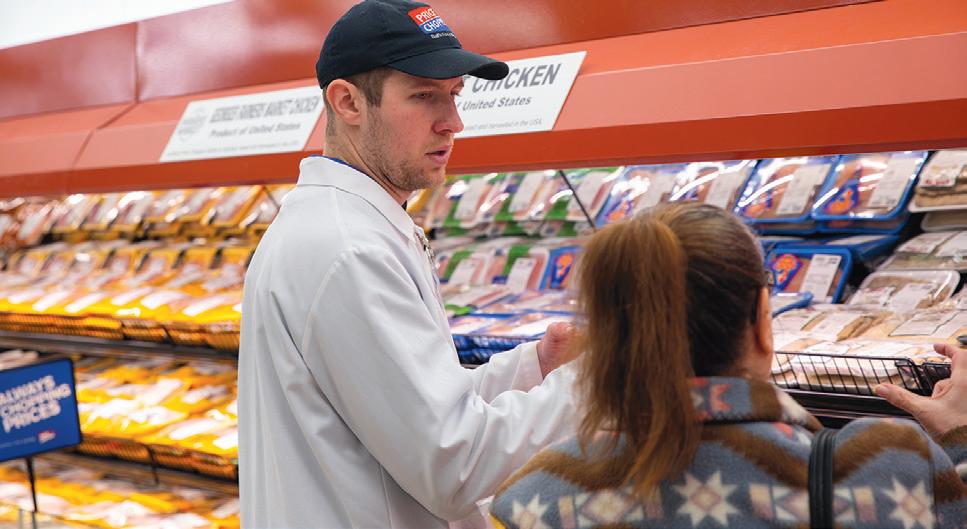
put strategies in place. The world we live in and the retail environment is just so competitive … we don’t want to fall behind.”
Frost said BFS 2030 is tied with the TSOP.
“We think that with the TSOP, it will help us grow, help us expand, help us bring on additional stores, and we’ll be better positioned to do it the right way.”
Part of this growth includes the development of two new locations – one replacing a store inherited from Safeway in the 1990s and another in a growing area of southwest Kansas City.
“We’ve had that property for many, many years, and now it looks like the rooftops are catching up, and it’s time to start that store there,” Frost noted.
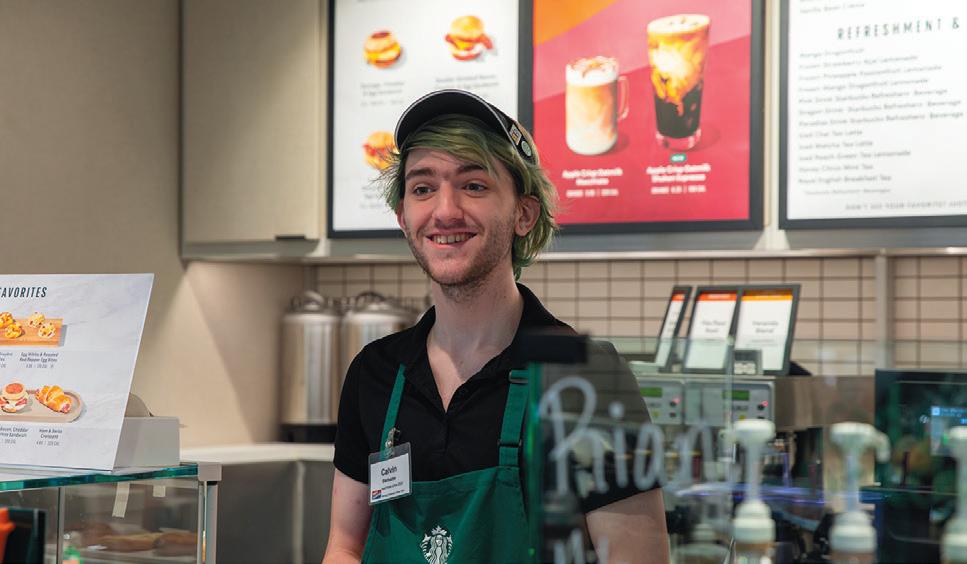
Recognizing the importance of employee engagement and retention, Balls Food Stores has maintained a 10 percent teammate discount introduced during the COVID19 pandemic.
Frost added that being a TSOP creates more incentive for teammates to stay with the company.
Labor has presented challenges, but he noted the company has discovered it can do more with a little less.
“With the same number of stores, we’ve declined in our teammate population … over the last year. We’ve been able to be more productive in some of the things that we’ve done.”
He said leadership realized the company had to do more with less, due to the challenges presented by the Gen Z population, which is the largest group working for BFS.
“Over a third of our teammates are in the Gen Z generation. The second biggest is Gen X, and then Baby Boomers are a close third. The Millennials, Gen Y, is No. 4. But Gen Z is the one that we really have to focus on. We want to make sure that we figure out what it is that gets them excited to go to work, and to come to work for us.”
To that end, the company has invested in modern training and communication tools, including an app called The Huddle, powered by Axonify. The app allows teammates to use their personal mobile devices for company communication and education.
“We know that they’re looking at their phone anyway, so we might as well have them look at their phone and learn about the company and their job,” Frost explained.
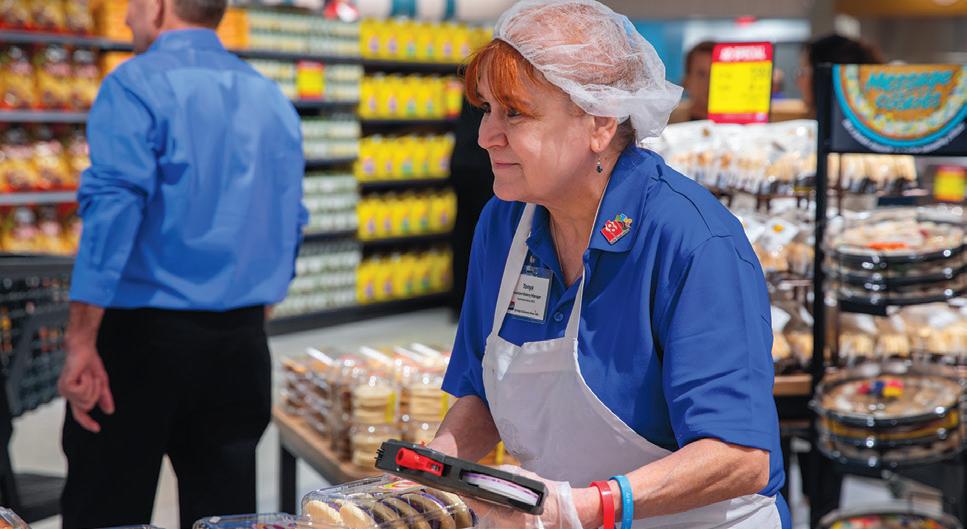
The app provides microlearning opportunities on a variety of topics, including company culture, safety training and leadership development.
He pointed out that, with few exceptions, all generations working for BFS have adopted the app quickly and enjoy it, “whether they’re 70 years old or 17 years old.”
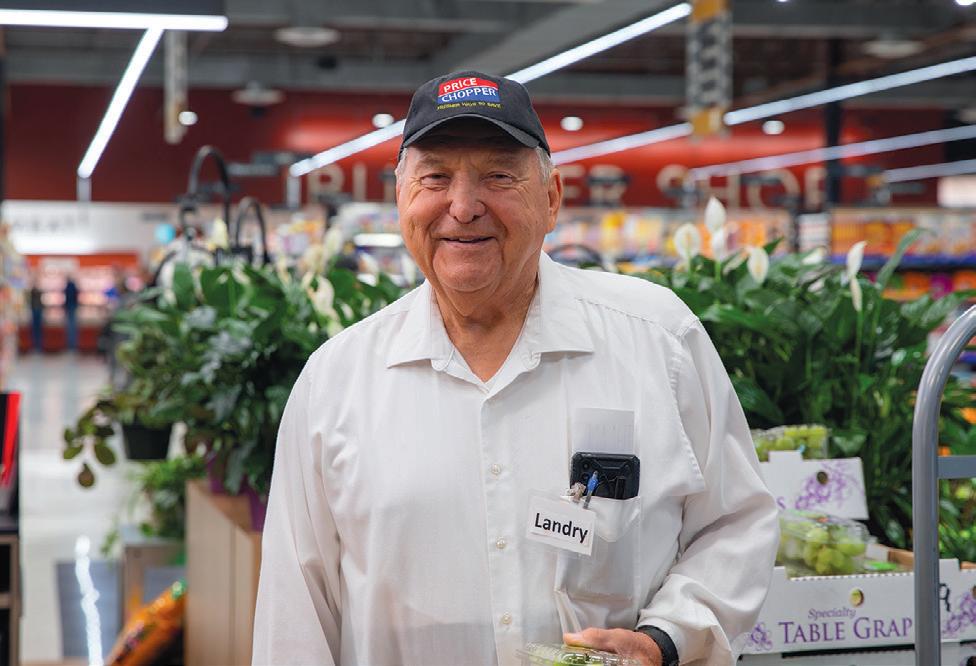
Beyond its business success, Balls Food Stores is deeply committed to supporting local communities. The company donates more food to Harvesters and other food banks than any other entity in Kansas City, according to Frost.
“We try to make sure that we help those who are less fortunate,” Frost said. “We try to remember we’re part of this community. Everyone that works for our stores lives in the community… we don’t work remote. We work in the stores.”
Frost also credits David Ball’s leadership and personal approach for fostering a strong company culture.
“David’s out in the stores almost every day, and he’s talking to the teammates. He knows them by name. He knows about their families. He knows what they do when they’re not working. And that’s a tribute to David’s leadership.”
With a steadfast commitment to its employees, a clear vision for growth and an unwavering dedication to the communities it serves, Balls Food Stores exemplifies the qualities that earned it The Shelby Report of the Midwest’s 2025 Retailer of the Year honors.
As Frost put it, “Our culture is a reason that we should be recognized. Whether it’s the best, I don’t know, but we should be recognized for being really good and being a fun place to work.
“That’s what people want,” he said. “They want experiences when they shop. And I think people, wherever they work, they want a good experience and a good relationship.”
Frost said BFS tries to stay relevant at all times with product offers and staying on the cutting edge.
“I think we cover a lot of areas in retail that customers like, and they tell good stories about us.”
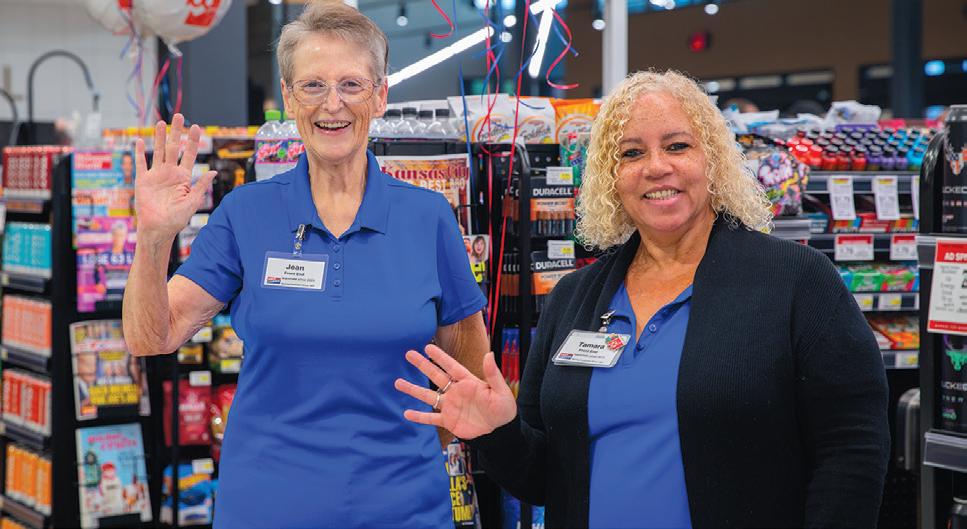

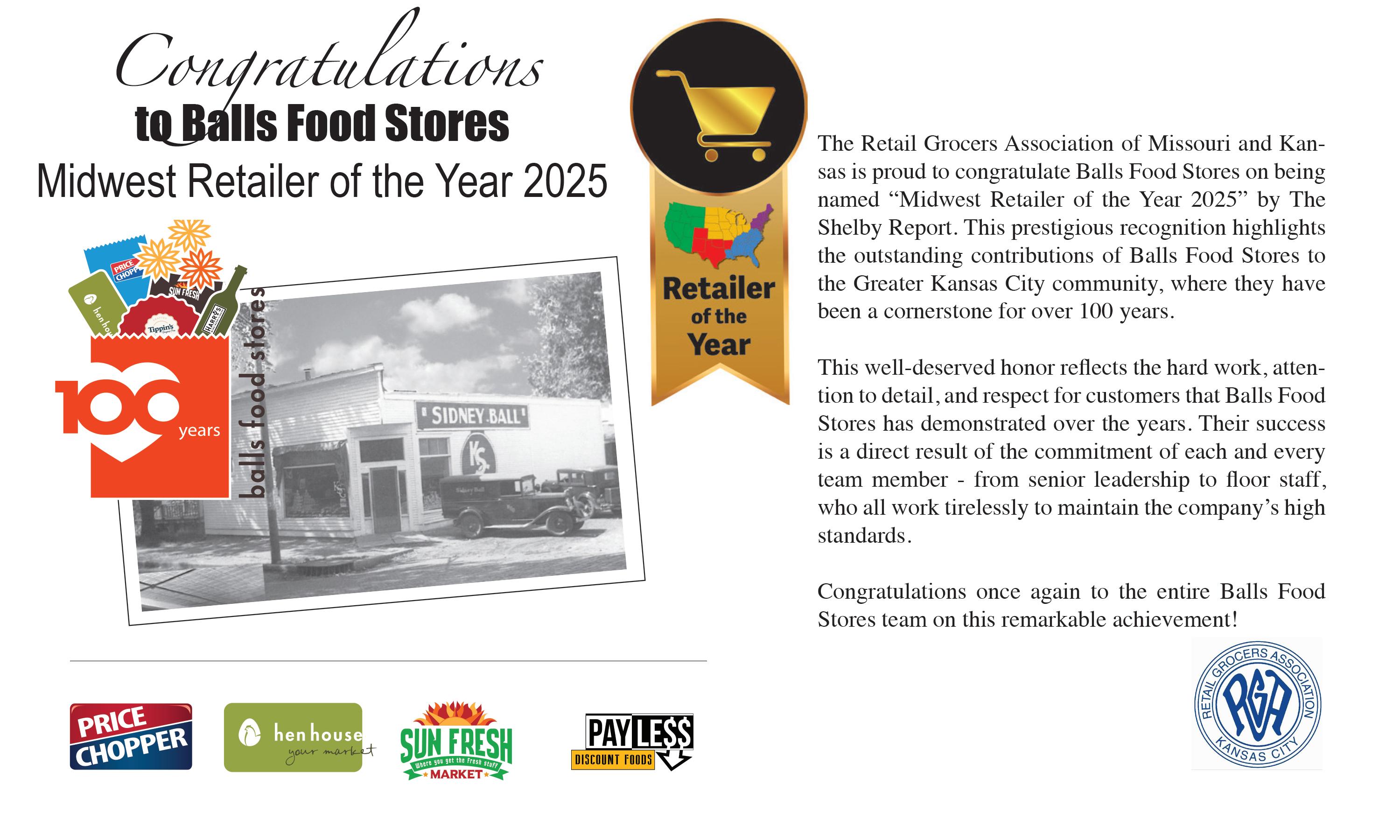
by Treva Bennett / senior content creator
Balls Food Stores (BFS), an employee-owned grocery chain with a legacy spanning over a century, is seeking growth opportunities through acquisitions while fostering a strong internal culture of ownership for its employees.
Mike Beal, EVP of mergers and acquisitions, recently shared insights into the company’s future direction and its innovative Teammate Stock Ownership Plan (TSOP).
Legacy of leadership, growth
“April 27 will be my 27th year back to the company,” Beal reflected. “I worked for the company right out of college. I worked part time going through the MBA program. And then my job after that, when I got out of school, was to open our new stores. I think I opened four new stores for us back in the early ‘80s.”
Led by President David Ball, BFS currently operates 25 stores, primarily in the Kansas City metro area, but its expansion strategy is now targeting a broader regional footprint.

“We’re keeping our eyes open for opportunities within a three- or four-hour drive, which can get us all the way to St. Louis, past the Kansas line, north to Omaha and south down to Springfield,” Beal explained.
He noted that while BFS has tough competitors, its internal culture of being teammate-centric and its connection to community helps it stand out.
“I knew David’s parents; I knew David’s grandparents. I knew David when I was in college and he was in high school. I can speak from experience, knowing three generations.”
According to Beal, the company’s connection to the community is one of the keys to its success.
“We pay close attention to the demographics immediately surrounding those stores,” he said. “We don’t have one size fits all when it comes either to the size, the design or the product offerings in our stores, but we pay a great deal of attention to the demographics around our stores, and we do try and cater to those.”
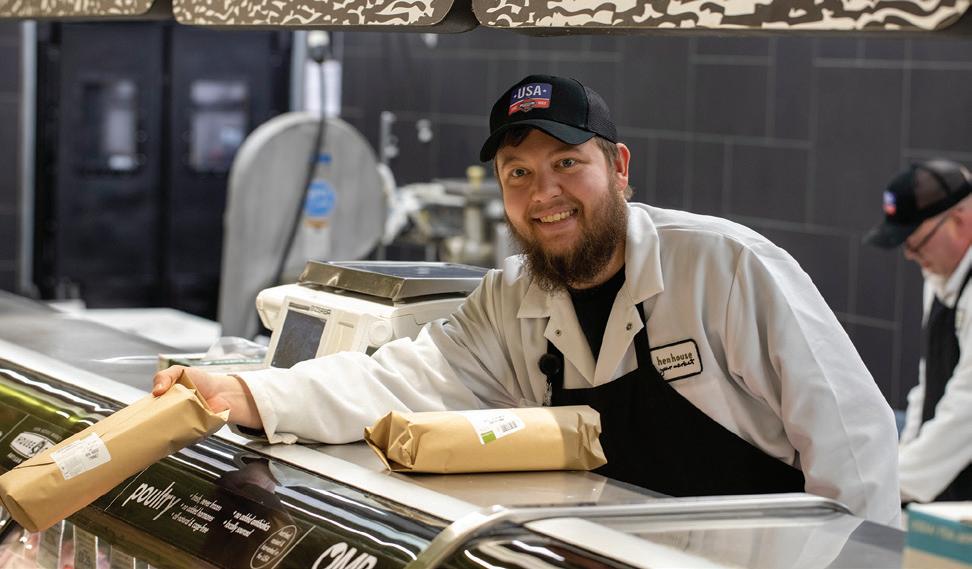
The TSOP initiative provides BFS employees an opportunity to share in the company’s financial success.
To Beal, it offers teammates a “great opportunity to grow into new responsibilities, because we’re looking for opportunities to acquire other grocers. It is an opportunity for significant growth for them, professionally and financially.”
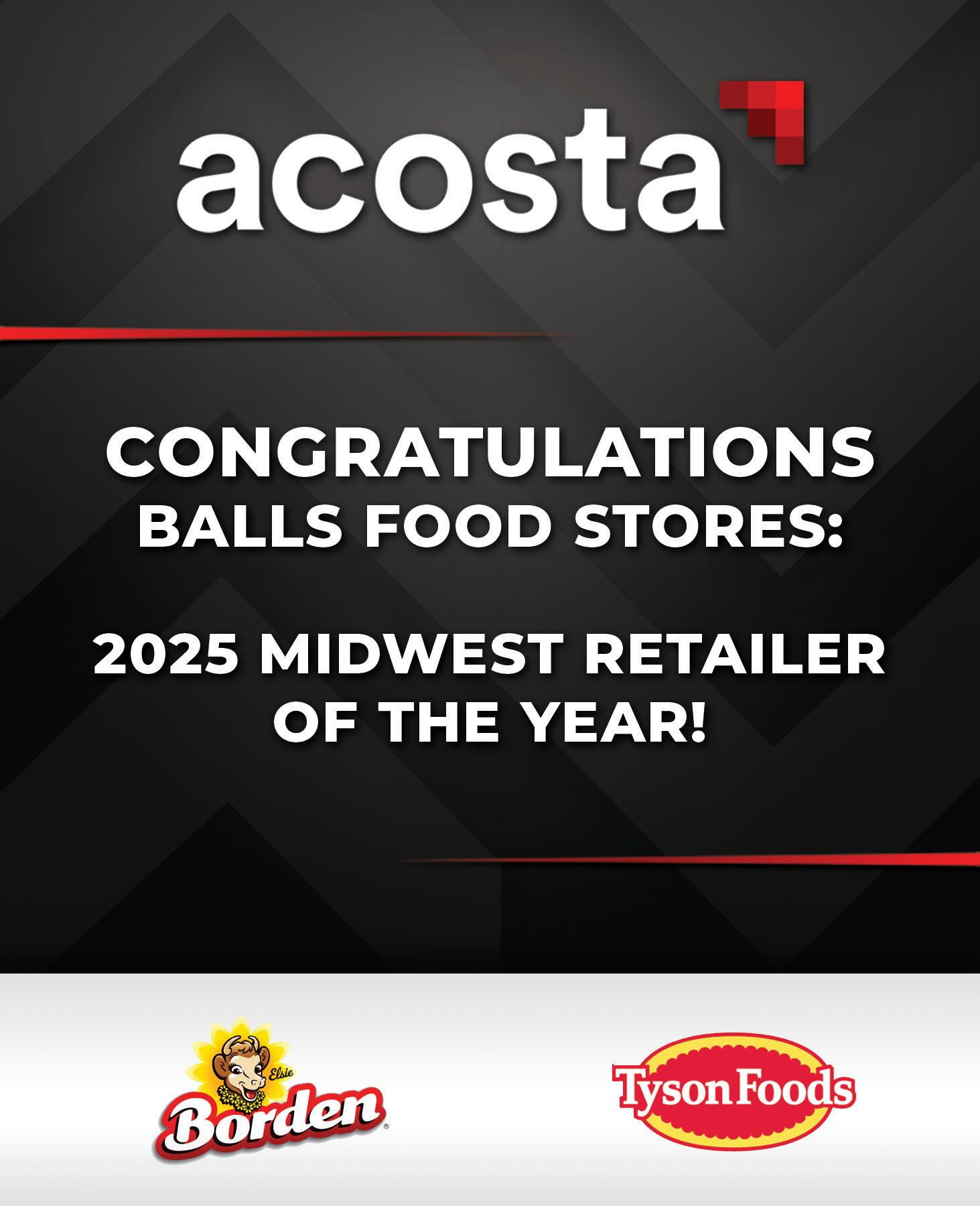
“This is an opportunity for their employees to join a company where they’ll have ownership … this is an opportunity to think that you can leave the business, as a seller, and feel good for what you have accomplished but also about the opportunities ahead for your employees,” Beal said.
He went on to note that when BFS set up the TSOP last year, it did not take anything away from teammates. “We kept our 401(k) match, and we wanted our teammates to know that this is something extra for them.”
Unlike other employee stock ownership programs, BFS’s TSOP extends eligibility to all workers, including entry-level positions.
“Our eligible teammates go all the way down to the sackers, the checkers, stockers, everybody in-store. It’s not limited to management. Everybody gets to participate as long as they’re 20 years old and work at least a little bit more than just part-time.”
Beal attributes much of BFS’s success to its strong company culture. “We honestly believe it is a very strong suit. I’ve been working with a number of teammates recently, helping them through situations, and one of them says [joining the company] is the best move she ever made.”
BFS also has been a pioneer in grocery technology. “Back in ‘98, we had the very first store in the world that offered self-checkout. We partnered with NCR, and then we did the same thing with the electronic shelf labels back then, too.”
He added that BFS has invested heavily into its stores over the last 10-15 years, through refreshing and remodeling.
He emphasized the advantages for potential sellers, as well.
“It’s also an opportunity for those retailers looking to get out of the business, to talk to somebody who’s been in the business for now over 100 years,” he said. “We are going into our 102nd year. It’s an opportunity for them to talk to another grocer, where those jobs are preserved.”
A company looking to sell may find having a teammateowned buyer as an attractive option.
“We still have a couple more that we want to touch and really do some significant remodeling to. But considering all of our stores, we put them up against anybody in the country when it comes to what we offer to customers in terms of products, services and amenities.”
Despite its growth, BFS remains true to its roots.
“It’s a great company to work for. We still are strongly preserving the family feeling and attitudes, and we really try to go out of our way to help our teammates when they need help,” Beal said. “It really makes it fun working in a culture like this.”
Looking ahead, he sees opportunity for the next generation of grocers to step in and thrive. “We need younger people to come in behind us and take over, people who really look forward to a challenge but also look forward to working with a lot of other good people and to grow.”
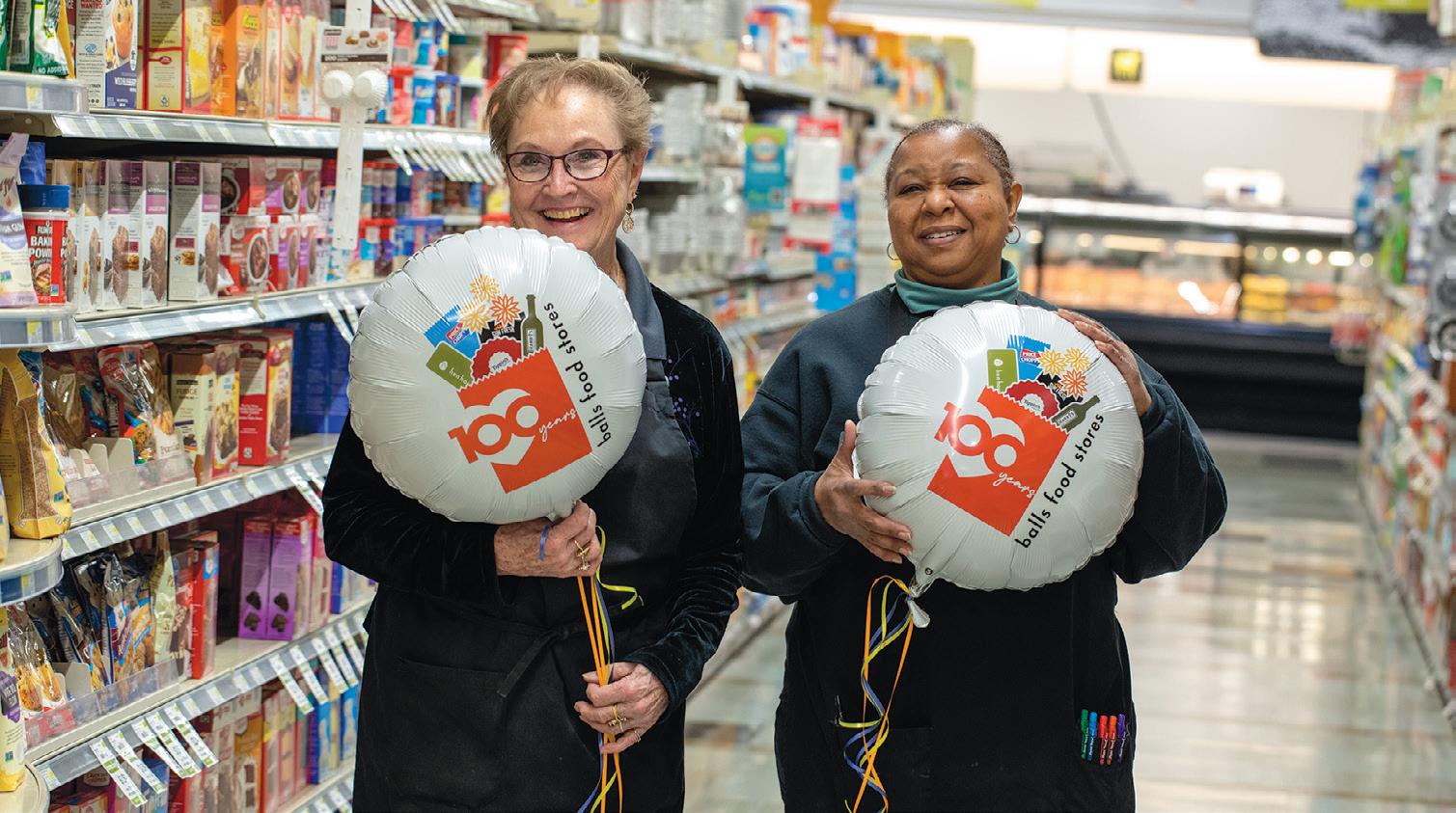
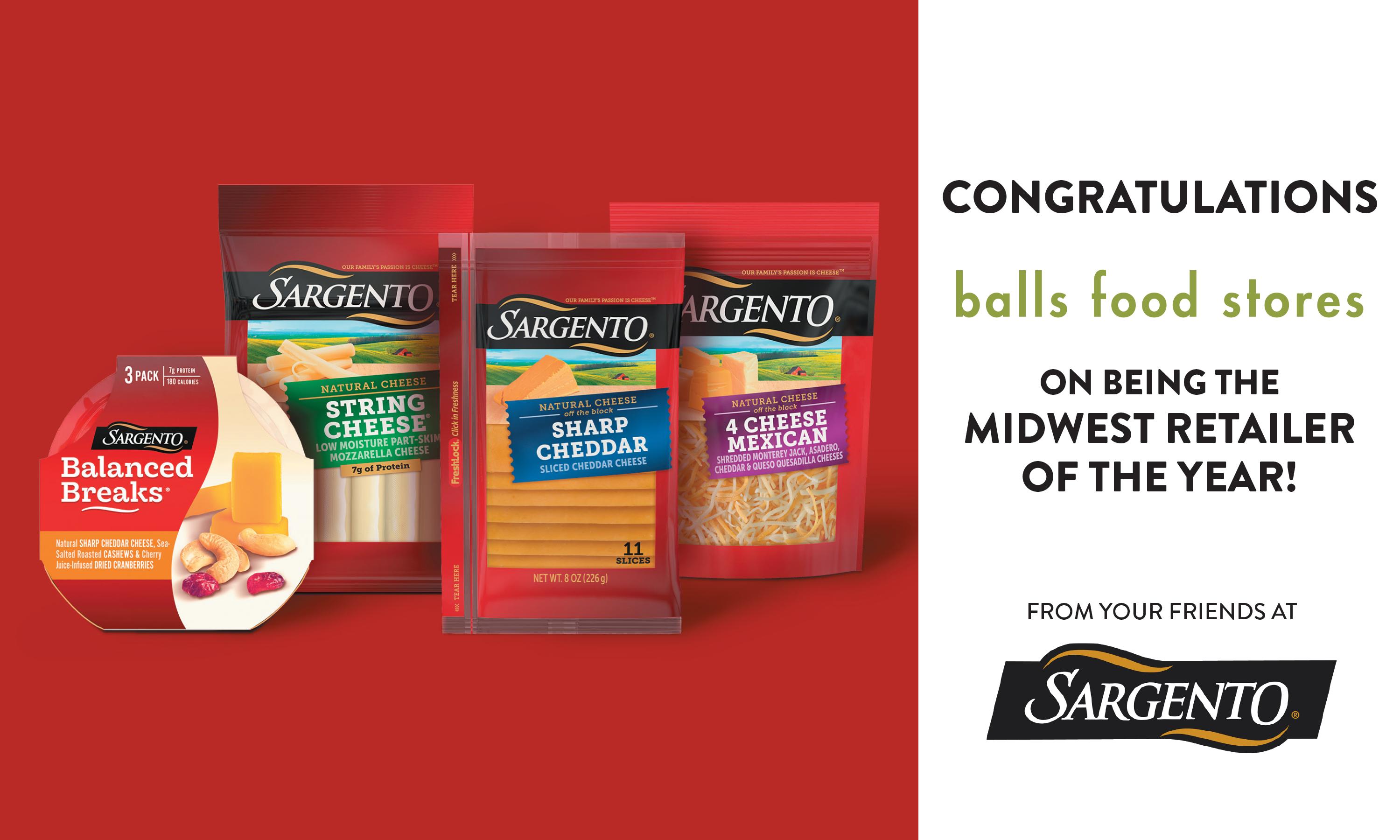
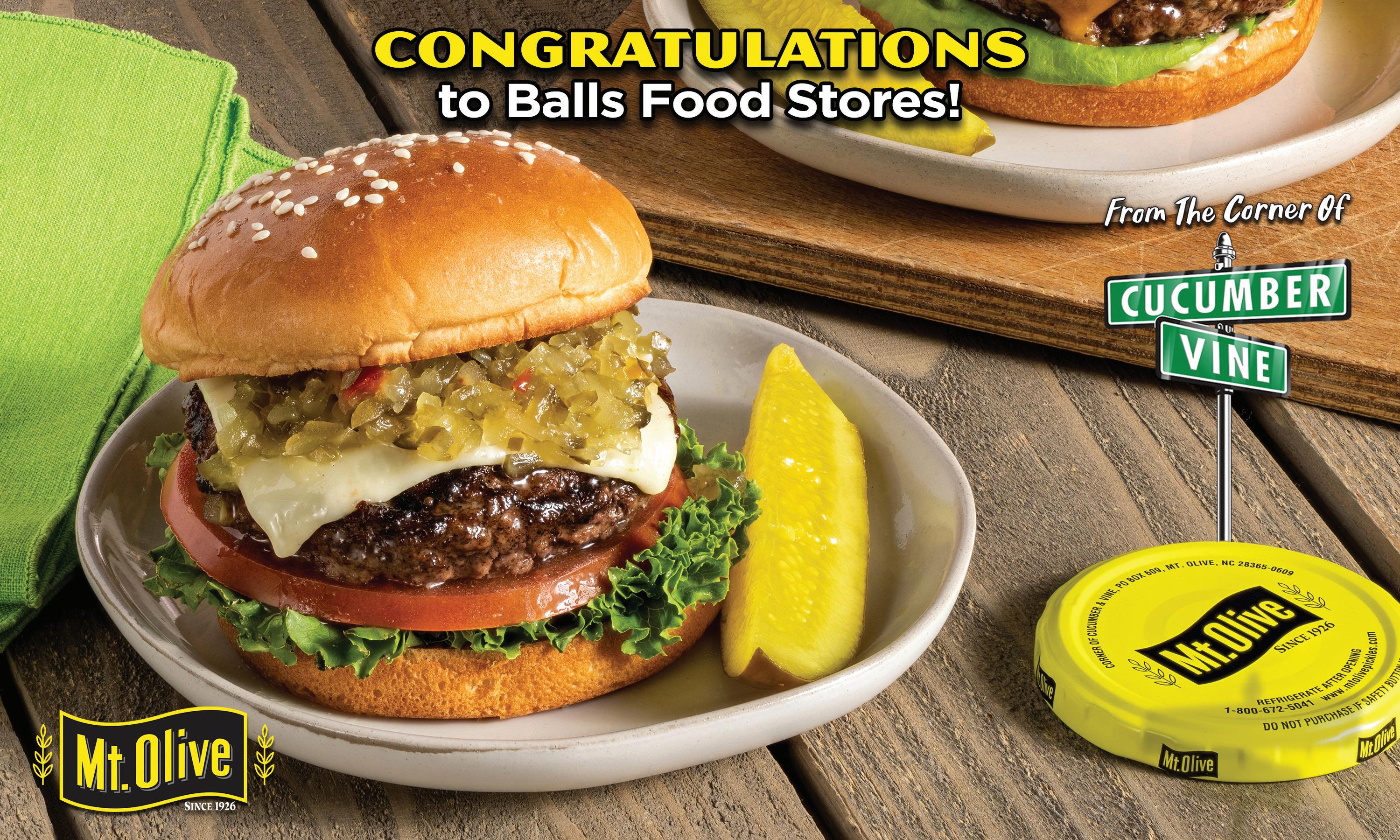
by Treva Bennett / senior content creator
With 19 pharmacies operating under the Hen House, Price Chopper and Sun Fresh banners throughout the Kansas City metropolitan area, Balls Food Stores has made a name for itself by fostering long-standing relationships with customers.

“Our claim to fame is the relationships that we have with our patients,” said Michael Halliwell, director of pharmacy.
“We have a lot of long-standing pharmacists who really do know everybody by name, have that rapport with families and multi-generational connections.”
Halliwell, who has been with the company for 31 years and has served as director for 27, attributes much of the pharmacy’s success to its location within grocery stores.
“The big difference with us being in a grocery store versus a traditional drug store is the average person is in our store two to three times a week, versus maybe a couple times a month,” he said. “That just lends itself to that rapport and really knowing your people, with them coming to you to ask lots of questions.”
Over its 35 years in the pharmacy business, Balls Food Stores has expanded its services to offer a range of patient care initiatives. One of its standout programs is medication synchronization (med sync), which ensures patients can refill all of their prescriptions at the same time, improving adherence and preventing potential medication errors.
“It really helps the pharmacist to look at them all together to assess what that patient’s taking,” Halliwell explained. “We’ve had great success catching errors – such as different doctors writing for a similar medication.”
Nearly 60 percent of eligible patients are enrolled in the med sync program. Vaccine administration is another critical service, particularly highlighted during the COVID-19 pandemic. The company transformed in-store cafes into mass vaccination sites and was among the first pharmacies in Kansas to receive COVID-19 shots.
“We were able to get a lot more people through, and that service was amazingly well received,” Halliwell noted. “The community was very excited that we were able to do that.”
A pioneer in postgraduate training, Balls Food Stores has hosted a PGY-1 community pharmacy residency program for more than 20 years.
“We are one of the few sites in the state of Kansas for community pharmacy that does that,” Halliwell said.
Residents contribute to developing new clinical services, such as the company’s travel vaccine program and medication therapy management. In 2018, the company was awarded the APhA Foundation Pinnacle Award based on many services developed through the residency program.
Halliwell said Balls recently launched a pilot for point-ofcare testing, allowing pharmacists to screen for flu, strep and basic urinary tract infections and provide treatment under state-approved protocols.
“If someone tested positive, we now don’t have to go through the doctor to get a prescription,” Halliwell explained. “We have a protocol that we can follow and then administer antiviral for the flu.”
The test itself costs between $10-$20. Any medication administered can be filed through the patient’s insurance.
Balls Food Stores also has demonstrated leadership in chronic disease management (CDM) through its Start Now program, which provides personalized care to teammates for conditions such as diabetes. The initiative has significantly
reduced costly health complications among employees.
“Our whole goal is to prevent serious health issues before they escalate,” Halliwell said. “If you end up in the hospital with a major healthcare issue, that’s hundreds of thousands of dollars. Our goal is to stop that before it happens.”
The program has helped control healthcare spending, mitigating what was once a pattern of double-digit cost increases.
“When you look at us now, over a five- to eight-year period, we might have increased by $2 million over that time, versus a million dollars every year,” he said.
Despite its success, Balls Food Stores is not immune to the challenges faced by independent pharmacies due to the influence of Pharmacy Benefits Managers (PBMs). Halliwell voiced concerns over reimbursement rates.
“I get reports every single day on how many drugs we are getting reimbursed for at prices lower than our cost to purchase them,” he said. “Never mind what it costs for heat, the building, licensing, staff and everything else that goes into running a business.”
Unlike independent pharmacies, Balls Food Stores benefits from its grocery affiliation, which helps offset some of the financial pressures. However, Halliwell warns that the industry is at risk. “Balls Food Stores is third-generation family owned and operated. We’re an independent. In our city, there aren’t many independent pharmacies left,” he said. “We’re the closest thing you’ll get to a [standalone] independent – same mentality, wanting to take care of your patients, know their families and be part of the community.”
According to Halliwell, being able to diversify services and find other ways to generate revenue that excludes the PBMs will be key to the future.
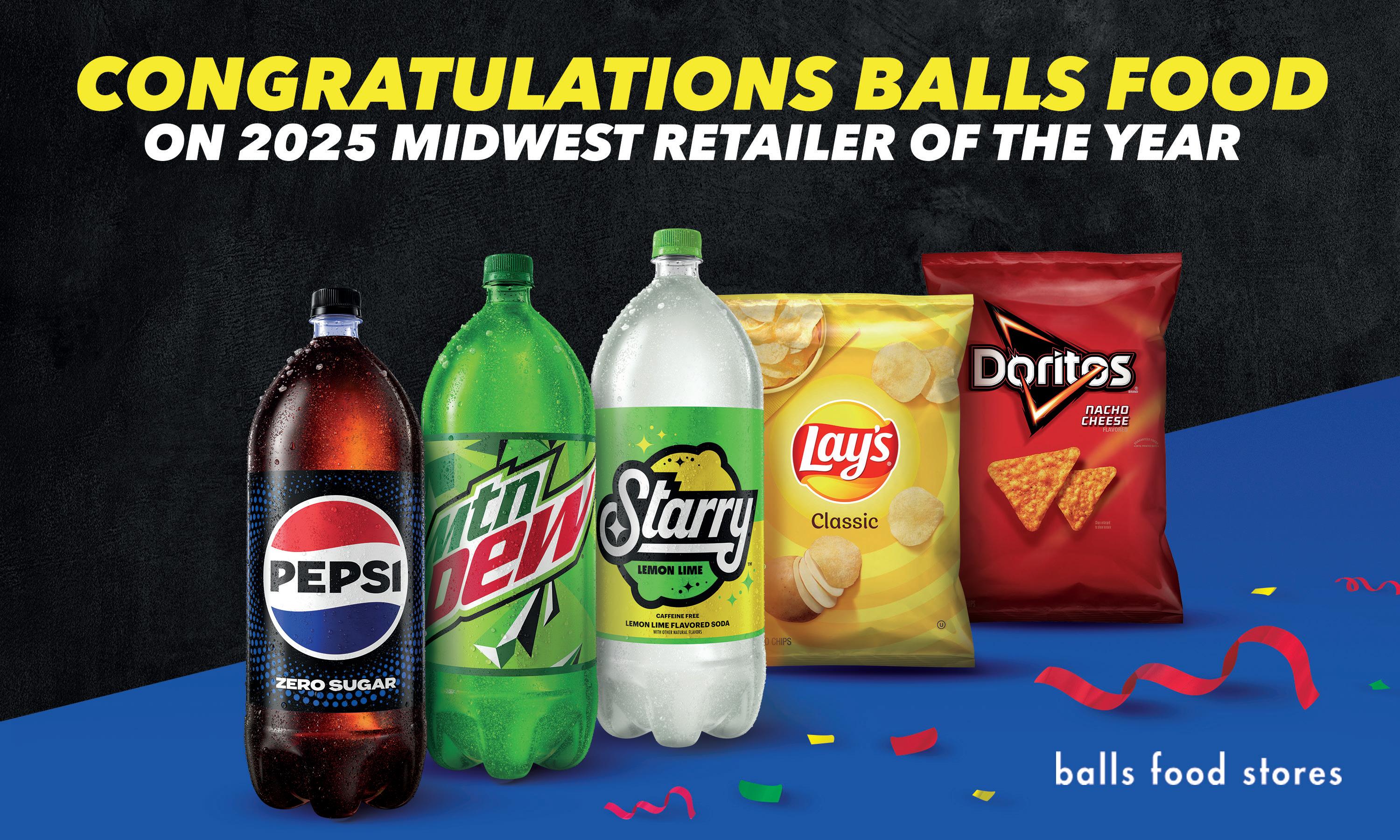
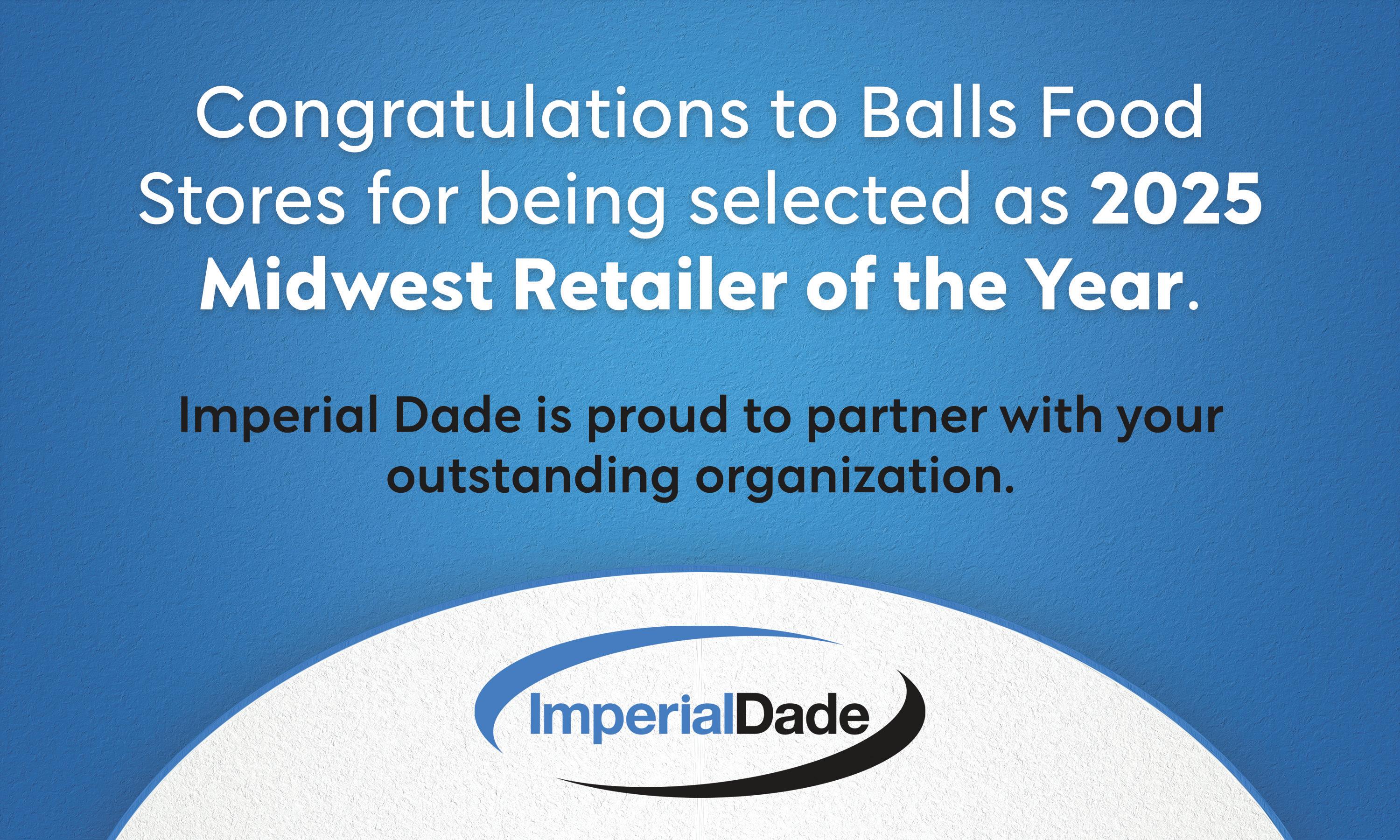

From humble beginnings, Balls Food Stores has become a leader in the grocery business in the Kansas City metro area.
Always looking for innovative ways to serve customers, Balls Food Stores has led the way with unique and forward-thinking shopping experiences.
From in-store bakeries and delis in the 1980s to today’s online ordering and pickup for busy customers, there’s always something new on the horizon at the grocer’s many locations.
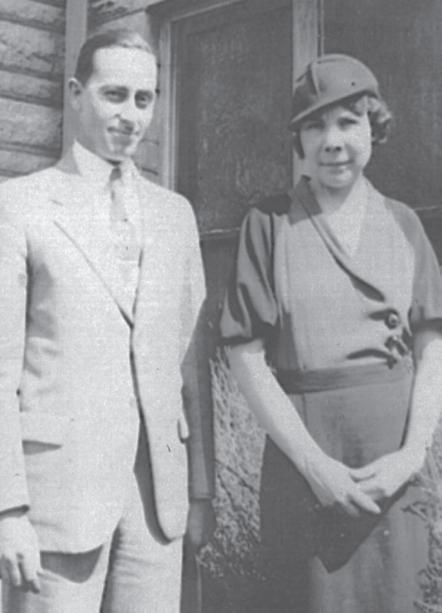
Balls Foods’ ongoing commitment to fresh foods, partnering with local suppliers and outstanding customer service has enabled the company to not only grow, but thrive.
As times change, Balls Foods is constantly looking to the future in grocery trends, green store technology and supply chain sustainability.
But the foundation of Balls’ success – customer service and commitment to the Kansas City metro community – will never change. And that’s progress!

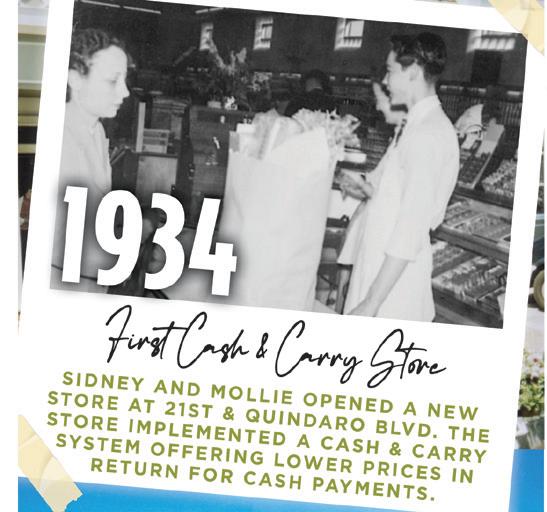
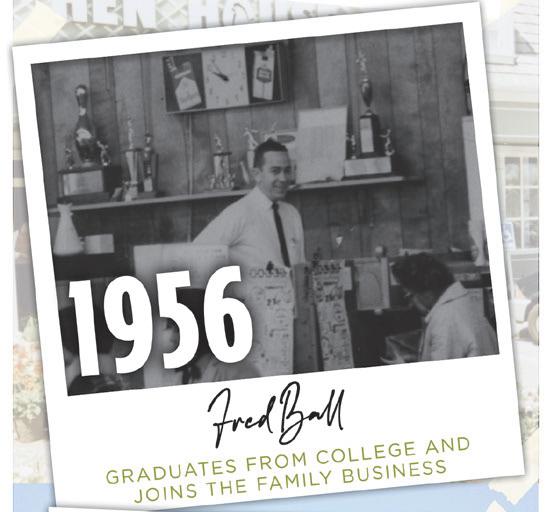
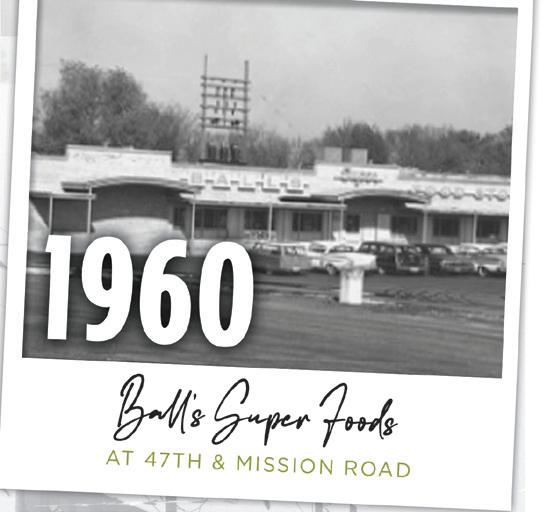
1923
Sidney and Mollie Ball opened their first store at 16th and Stewart in Kansas City, Kansas.
1934
Sidney and Mollie opened a new store at 21st and Quindaro Boulevard. The store implemented a “cash-and-carry” system, offering lower prices for cashonly payments.
1948
The third store at 34th and State Avenue opened, unveiling yet another innovation – Kansas City’s first large-scale supermarket format.
1956
The fourth store at 55th and Leavenworth Road, opened in Kansas City, Kansas.
1960
Balls Super Foods opened at 47th and Mission Road in Kansas City, Kansas.
1975


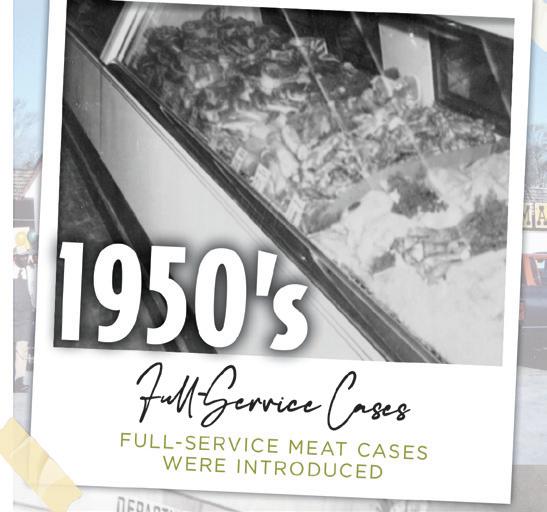


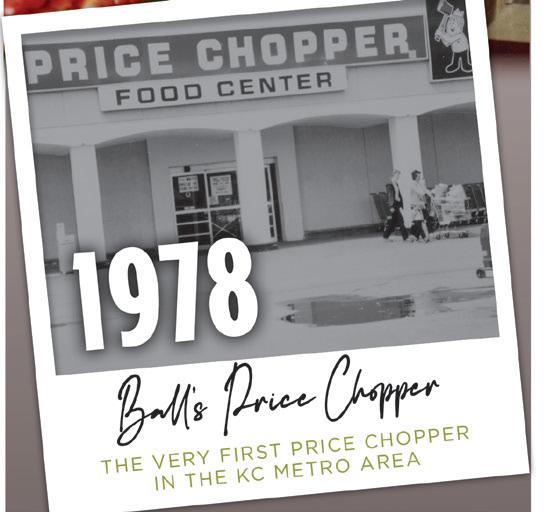
Sidney and Mollie Ball turn over control of their company to their only son, Fred Ball, who becomes chairman of Associated Wholesale Grocers.
1978
Balls Foods opens the first Price Chopper in the Kansas City metro area.
1989
Two Original Hen stores are purchased from Buck Henson.
1990
The first new Hen House store was built and opened in Lenexa, Kansas. The store was more upscale and focused on perishables.
2000
David Ball (third generation) became the president of Balls Food Stores, leading the way into the 21st century.
2004
Tippin’s Gourmet Pies was formed to purchase all the food and pie-manufacturing assets of Tippin’s Restaurants.
2014
The Price Chopper in Olathe, Kansas, was remodeled and reopened as “Payless Discount Foods,” a low-priced warehouse format store.
2016
The company’s first Sun Fresh store was purchased from the Charles Ball family. It caters to the Hispanic population in the area and has become a successful Ball’s venture.
2021
A new Price Chopper was built at 5665 Bannister Road in Kansas City, Missouri.
2023
Balls Food Stores celebrates its 100-year anniversary with a variety of activities and events, including a visit from the Budweiser Clydesdales at many of its stores.

